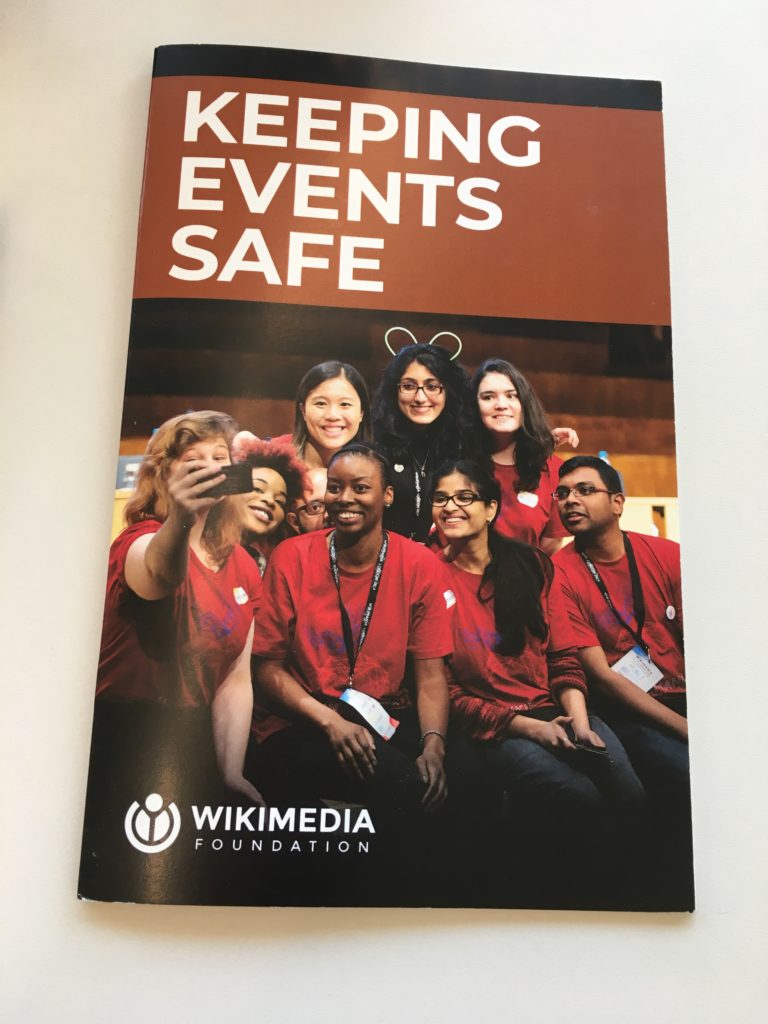Here it is friends. I’m running for school board. I have been thinking about this for a long time to be honest. I love our community and the people in it. But we can do better. Connect with me on my campaign site.
Category: Everything Else
Sharing thoughts on neutrality and BLM on Wikipedia
Late last week, attorney and writer Stephen Harrison reached out to me. He was tasked with writing a piece about neutrality and Wikipedia in the aftermath of George Floyd’s murder for Slate.
Stephen was familiar with my work tangentially in the Wikipedia community but also became more familiar with my work on equity through my essay for an upcoming MIT Press collection, Wikipedia @ 20. Stephen also contributed to the volume.
He asked my thoughts about the discussions on Wikipedia surrounding BLM, George Floyd, neutrality, and knowledge equity. The resulting piece he put together is really brilliant. If you haven’t yet, go read it.
I co-edited a book: Wikipedia @ 20

Wikipedia@20 Panel at WikiConference North America 2019 Victor Grigas / CC BY-SA
In October 2018 I responded to a Call for Proposals for a collection of essays about Wikipedia at 20. I was encouraged to submit an abstract by some colleagues during WikiConference North America 2018.
A short while went by and I found out my essay was selected. There was plenty of editorial feedback to keep me busy! I worked and completely threw the piece out many times before submitting the full essay.
Then I found out the book might not happen. A change in editorship meant the project was at risk. Some contributors who are also friends reached out expressing their upset that the project may not happen. This work is just too critical and needs to be published!
Editing a book is a major undertaking. Not really knowing much about editing a book, but also not one to shy away from a challenge, I reached out to Joseph Reagle to see how I could help. I offered that I could serve as co-editor. Graciously he patiently guided me through the process and exercised patience with my late-night and limited work hours.
Over the past year, I learned so much about editing a publication for a major academic press. I have gotten to know so many contributors and their work so well. I feel humbled to have read their essays and provided them with feedback. Really such great academics, advocates, artists, educators, innovators, journalists, librarians, researchers, and technologists.
I still get giddy reading the essays. They are all so different but work well together because they demonstrate in such concrete terms how Wikipedia has changed knowledge sharing and the world.
The WikiConference North America 2019 organizing committee asked the Wikipedia @ 20 editors and contributors to participate in a panel for the opening keynote.
During the process, we used PubPub, MIT Press’ open collaboration platform, to edit and share essays for community feedback. Unfortunately, we had space constraints and had to choose limited essays to publish in the printed volume. The full collection of essays is available on the Wikipedia@20 PubPub. If you’re anything like me, you’ll love the printed copy available in the MIT Press Fall 2020 catalog.
Thank you to the contributors for continually engaging with this project. An unending amount of appreciation and hugs to the social sensitivity experts we engaged with during the publication process. A huge thanks to the MIT Press staff working to make sure this publication happened and is successful – this includes funding as this publication is a CC BY-NC 4.0 licensed publication. And finally the biggest thanks to Joseph Reagle for his deep well of patience, guidance through the publication process, and amazing organizational skills.
Wikimedian in Residence
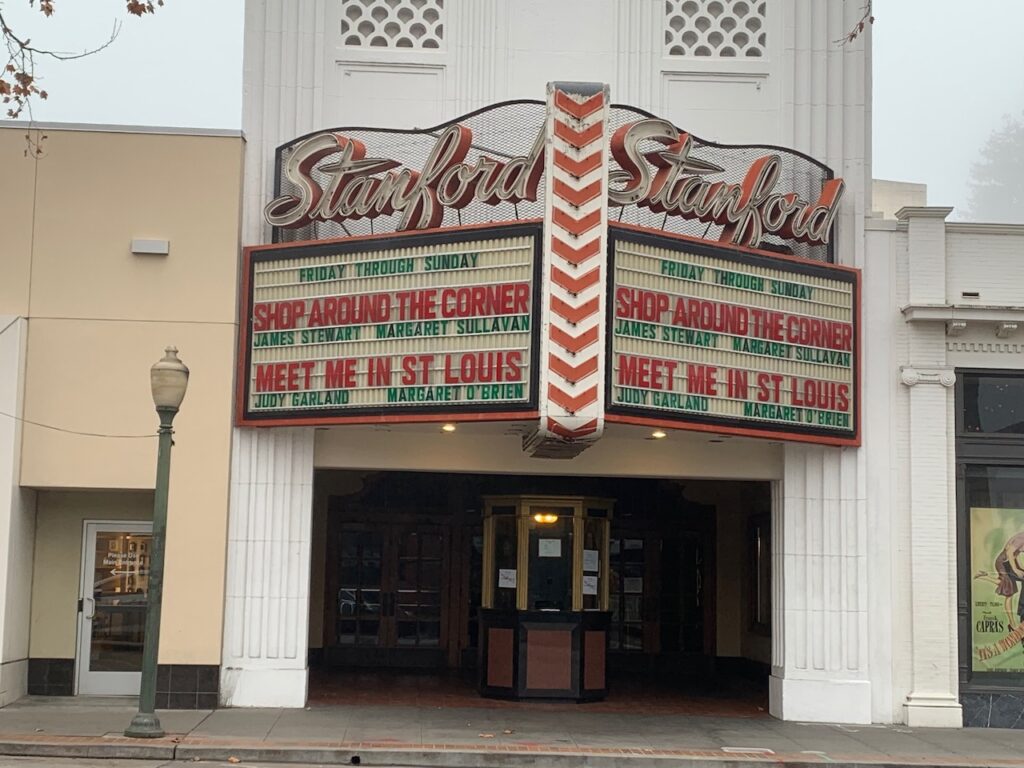
I have been casually on the job hunt since graduating with my PhD in August 2016. I plan to stay home with my youngest until she starts school, which is still a few years away, but sometimes really cool jobs just pop up and I have to apply. This was one of them.
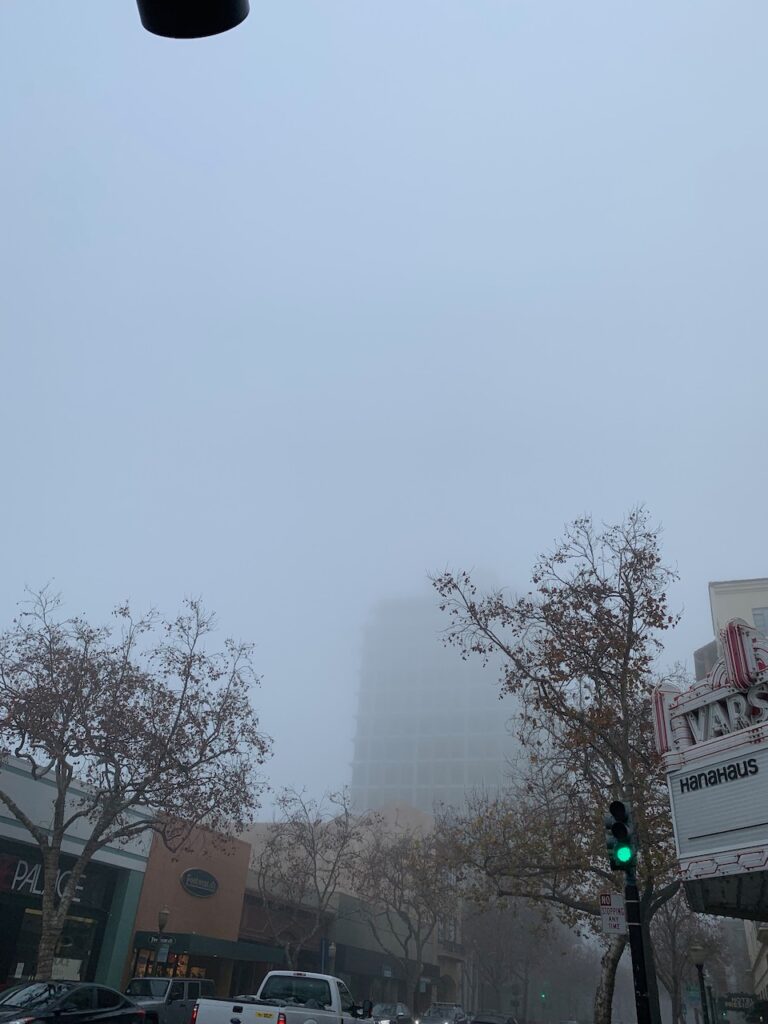
Karl came to visit me during my morning jog.
In October 2018 I found a job posting for a Wikimedian in Residence to work with the LD4P initiative. The job would be working with affiliated libraries’ staff to upload and connect their collections with linked open data on Wikidata.
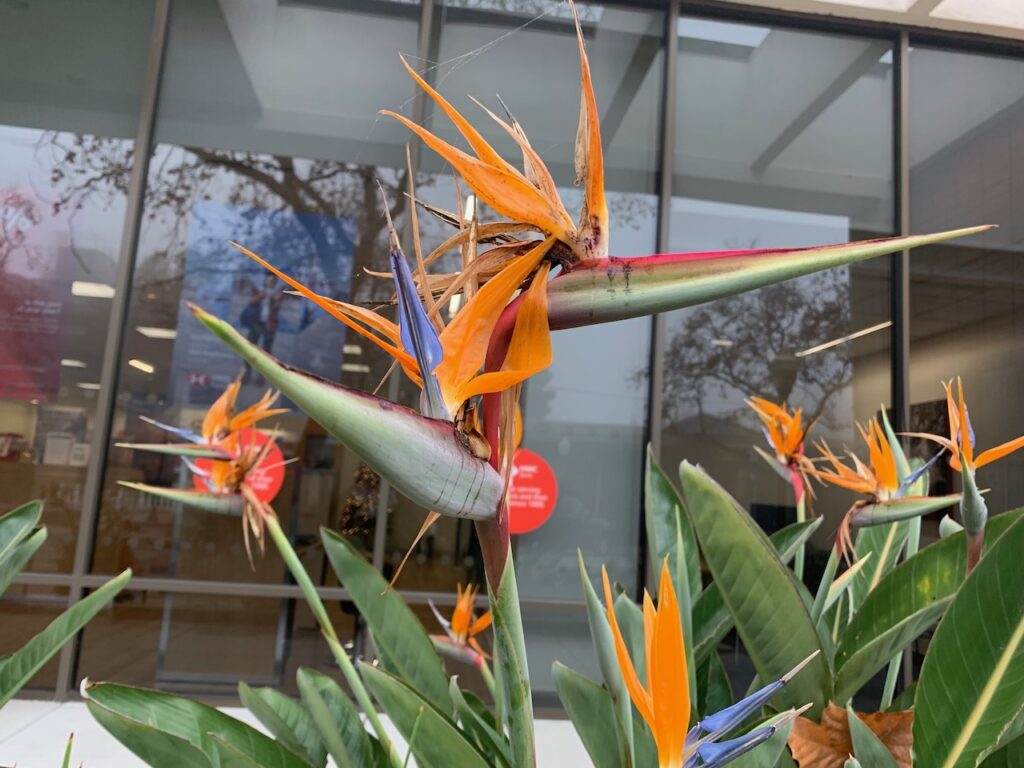
I passed the first round of interviews and was invited to Stanford University’s campus in December 2018 for an all-day on-campus interview. For any academic, you know these days are long and tell you a lot about the position and institutional culture.
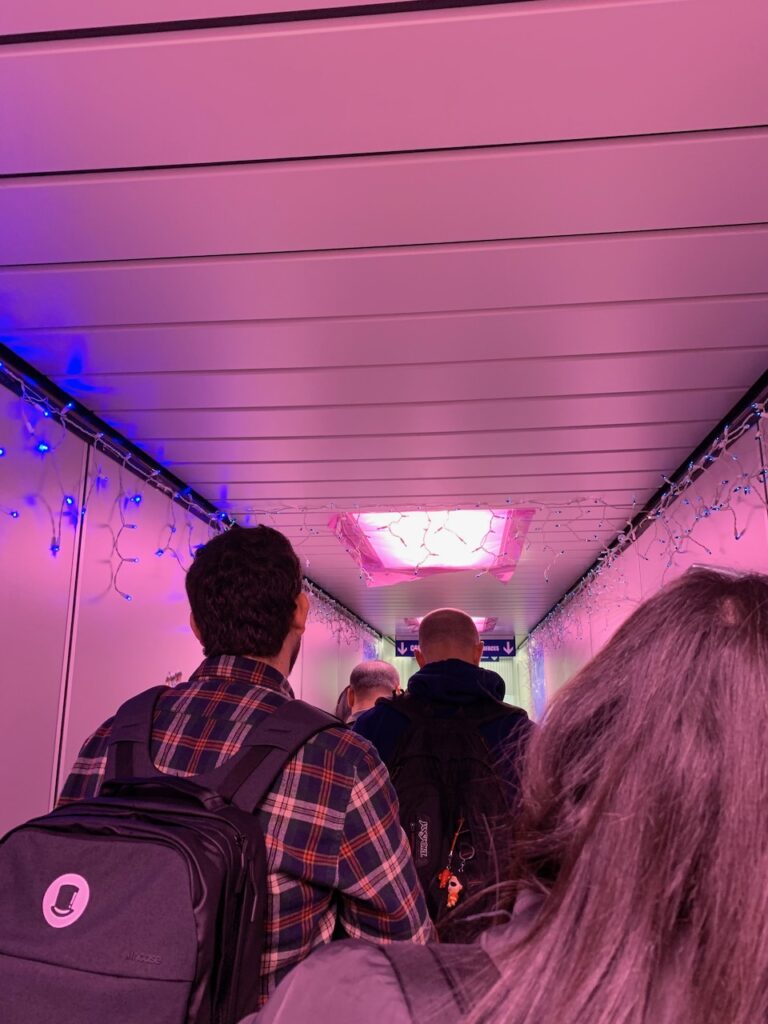
Festive Southwest jetway decorated for the holidays
I booked a last-minute flight to San Francisco right before Christmas, which was a little tricky! I checked into my hotel when I arrived in Palo Alto mid-afternoon. It was a historic hotel – I love staying in historic hotels! I walked around town, enjoying the atmosphere, ate some ramen, and met up with a friend for dinner.
The next day I met a good Wikipedia friend for a walk and lunch. It’s always a delight catching up with her. She’s doing a lot to connect public librarians with Wikipedia. She even edited a book!
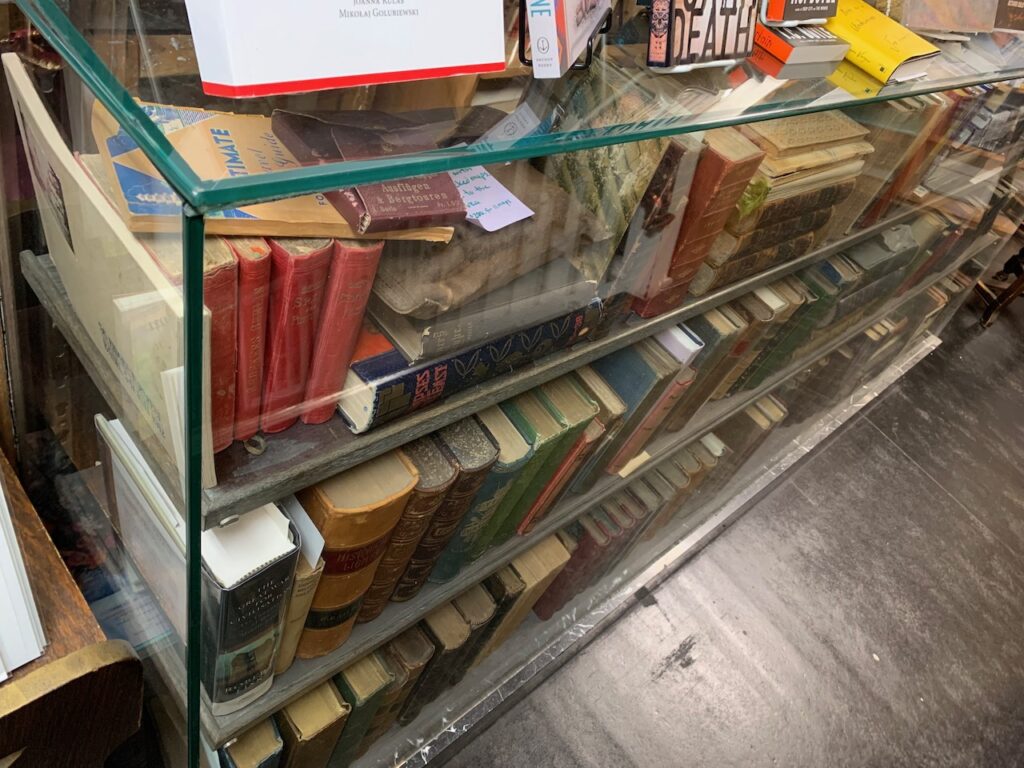
After a great day of interviews and a great chat over dinner, I was sure I’d receive a happy phone call in January. I really enjoyed meeting the various staff members, was thrilled by the challenges of the role, and encouraged by what this project meant for free knowledge.
Unfortunately, as for the job, an internal candidate expressed interest in the position. Being they had the institutional knowledge I did not, it was an ideal match. I really got my hopes up!
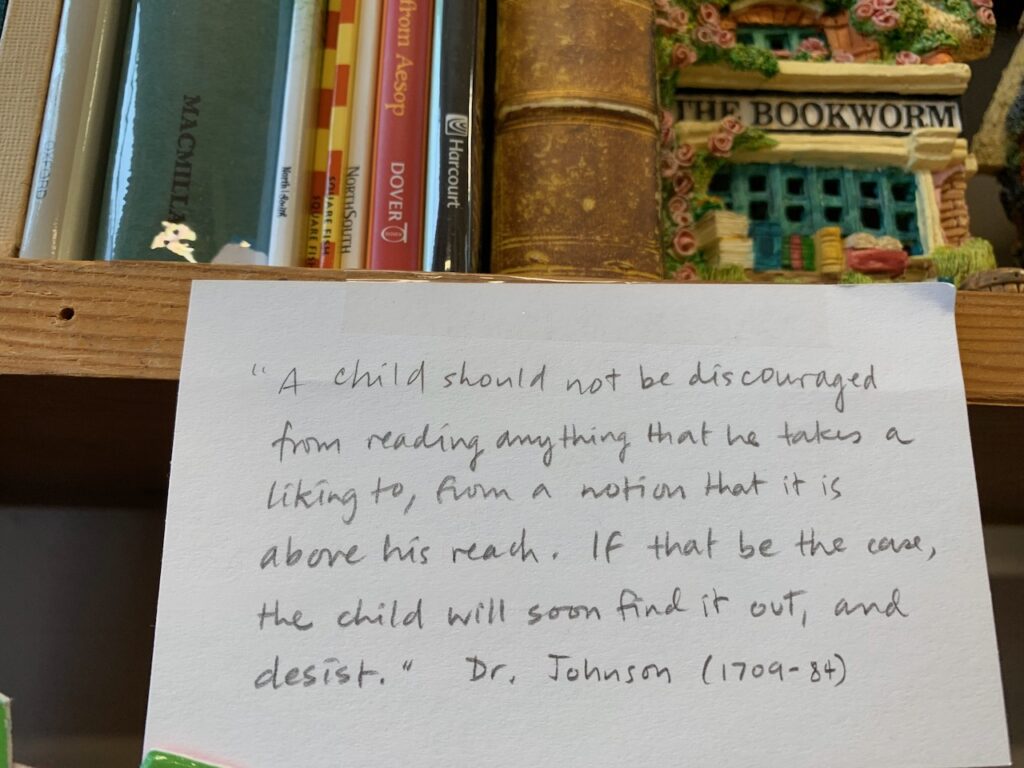
While I did not end up in the Wikimedian in Residence position, I do hope this project fulfills all the goals. It is a critical relationship to develop connections between knowledge institutions and Wikipedia. I get emotional thinking about how many (big name) institutions are on this partnership and what this means for the knowledge they possess and the knowledge seekers can receive.
Reflections on WikiConference North America 2018
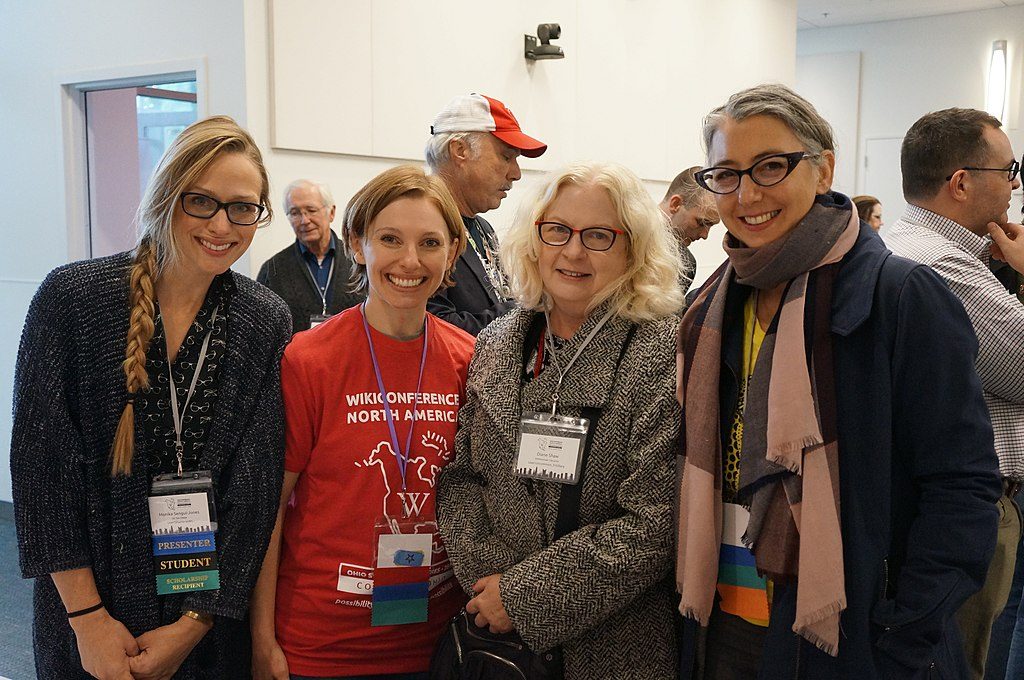
In October, I traveled to the Ohio State University campus in Columbus, Ohio to attend Wiki Conference North America. I had never been to the Ohio State University campus. It is a beautiful campus surrounded with a variety of old and new. There are residential street lined with brick multi-family flats, brick sidewalks, and, of course, a long street of fraternity houses.
Wiki Conference always is a great experience. I meet new wiki-friends, reconnect with old friends, and find out about the incredible activities everyone is working on. It’s really an uplifting and supportive community.
Before this WikiConference, I submitted 2 proposals: Implicit Bias: The Damage Report and Wiki Loves Your Community. I was fortunate to receive a scholarship to attend WikiConference and be able to give my presentations!
I started working on Wiki Loves Your Community at the Wiki Leadership Bootcamp in the summer of 2018. This was something I mentioned and another Bootcamp attendee and contributor said he felt passionate about the same project. We connected and developed a framework. He was terribly busy and I ended up doing the presentation by myself. The topic was well received but it needs some hands-on support to get started. Since the presentation I have been terribly busy with other wiki work as well. Hopefully we will pick this project back up in the near future.
I could not have been more excited to give my report on implicit bias on English Wikipedia. I hoped to do a bigger study, and may still do so in the future. Implicit bias is something we have seen mentioned anecdotally lately, as it has been somewhat of a buzz word, but it has deep impact. Recent studies show how bias lives in the programs society trains, the policies society develops, and so much more. I really hope bias gets more attention in the Wikimedia movement.
For WikiConference 2018, I was asked to serve as the Volunteer Coordinator for the conference. I love organizing and connecting with others who want to help make the conference a success. I met so many great folks – I really have to give a shout out to the photographers. They took the imitative and organized to provide a broad coverage to the conference. The room minders were also incredible – providing feedback, facilitation, and tracking down tech support. While at the conference, more people offered to volunteer and just jumped in to help where needed. It really is a great community! I cannot wait to organize volunteers at the next WikiConference.
If you have not attended Wiki Conference North America before, I really hope to see you at the next event. Let me know if you plan to come!
Reflections on Wikimania 2018
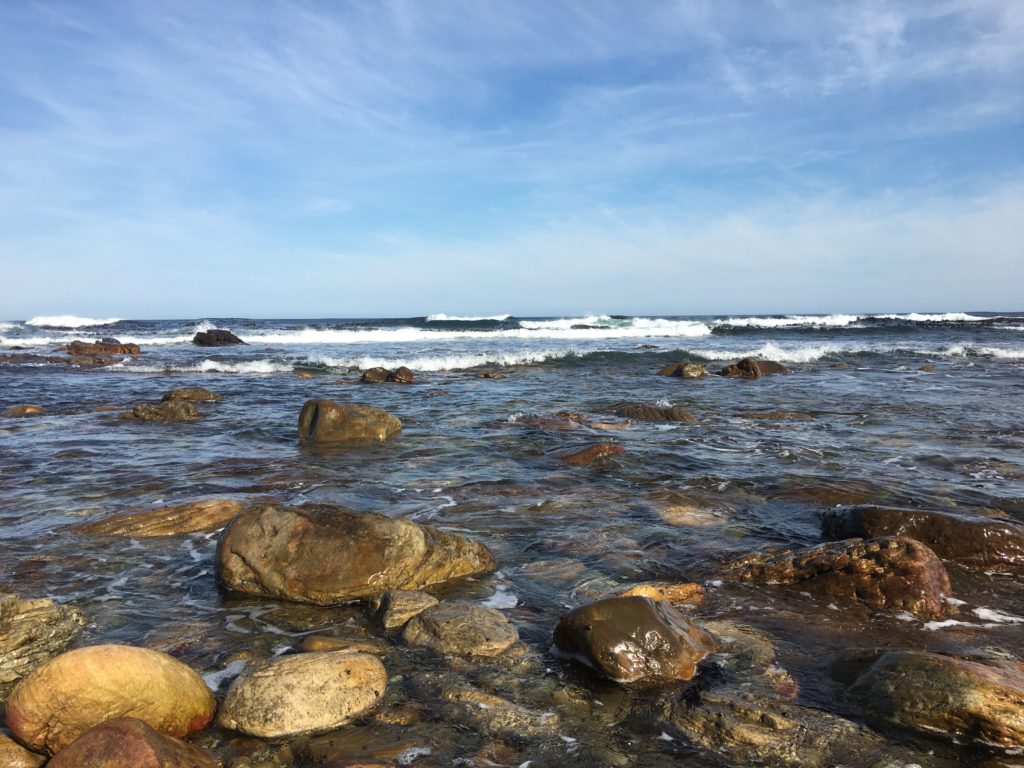
A couple weeks ago, I started an adventure I never imagined I would. I traveled to Cape Town, South Africa to attend Wikimania 2018. Last month I posted my reflection on Learning Days at Wikimania 2018, so if you haven’t read that, start there and then come back to read my reflection on Wikimania 2018.
To begin Wikimania 2018, the planning committee organized an opening party at Two Oceans Aquarium. I was so excited! I love ocean life, so this made the night amazing from the start. While there I got to meet some new wiki friends and end the night with my oldest of wiki friends. I love that no matter how long it has been since we have seen each other, we start back up like it was no time at all. This community is really what makes all wiki things go – from creation to connection.
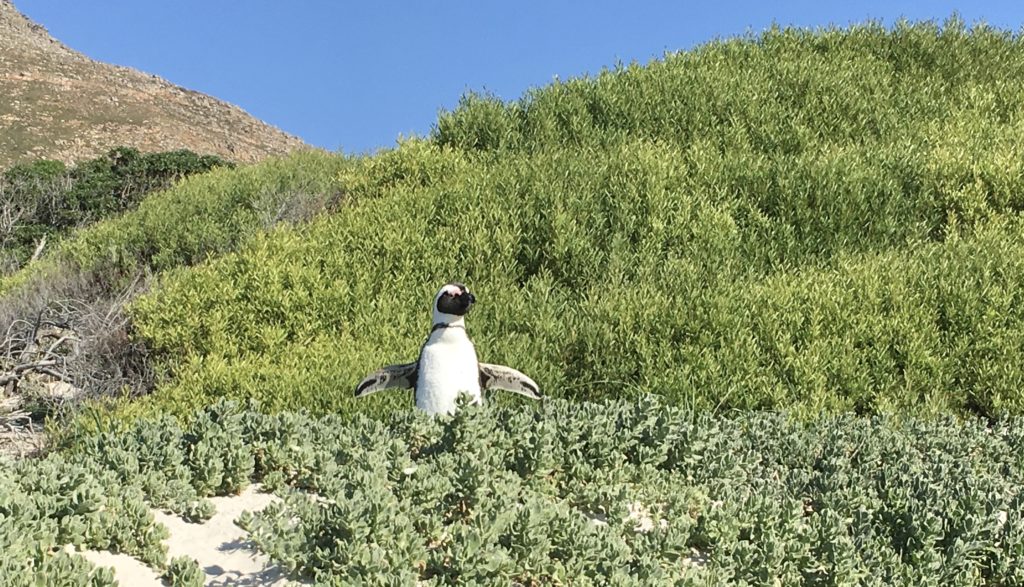
While at Wikimania, there was so much to learn from everyone who came. I realized at Wikimania 2017 how open people were with their knowledge, a stark change from the academic conferences I had attended. This only expanded when I attended the Wikimedia Diversity Conference. There I learned so much from broader parts of the world and truly understood in sharp relief how Western-centric our focus is. This experience and observations I made during Learning Days convinced me to make a commitment. I chose during Wikimania 2018 to listen and not take space where other people’s voices should be heard. I am glad I did, because I learned so much from communities and people I had not otherwise met at other Wikimedia events.
The people I met told me stories about what they are doing in their community, what they have accomplished and what their challenges are. There were successes of getting information literacy on the national and college curriculum, and there were challenges of the very real and mortal risks of free speech. These are people in their own countries and communities doing amazing things. Many of the presentations echoed my strong beliefs about the needs of the free knowledge movement to focus more on empowering communities doing the work.
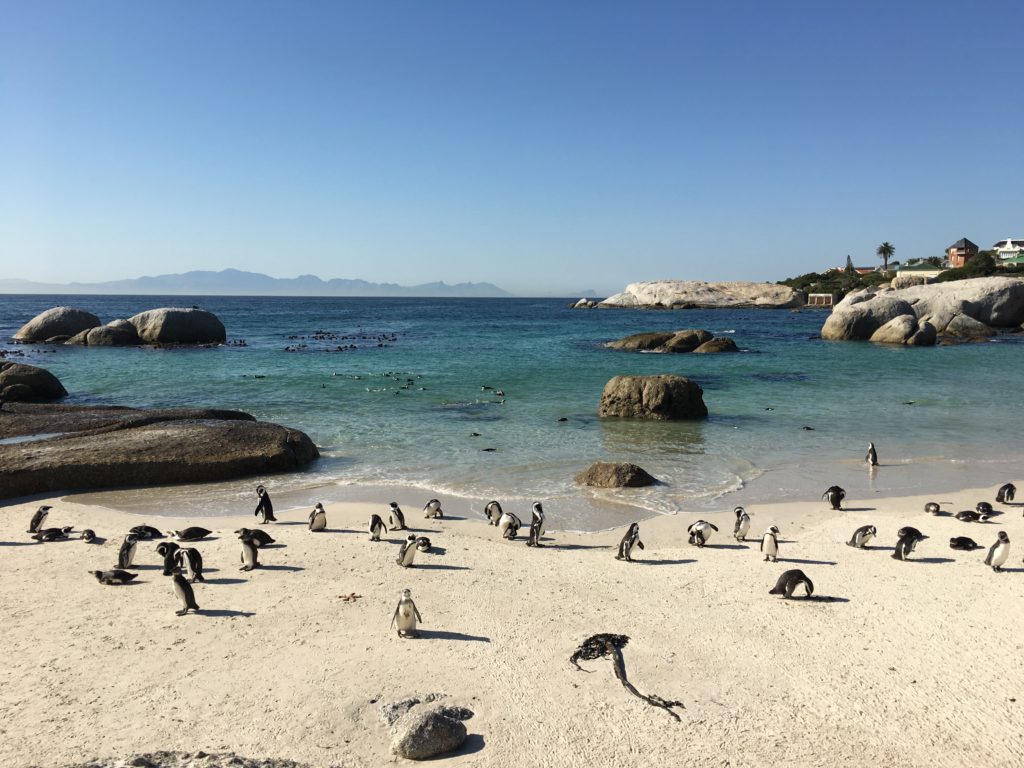
Below I’ll summarize the information from my pictures, notes and tweets that I took during the sessions as well as tidbits of information about the week:
Gaps in Global GLAM Capacity
This session was a panel of people working to collect critical information digitally before it is destroyed by age or other natural factors. They discussed the issues of building relationships and convincing people this is something that is culturally critical.
Centering Knowledge from the Margins
Whose Knowledge hosted a panel of organizers, scholars and allies to discuss knowledge and privilege. Some quotes I have from that session are:
On Wikipedia a lot of people think they’re experts in a lot of different areas, even though they’re not.
Having to create a handle that sounds like a white European man to avoid cultural oppression is not tech equity.
Online is a space we inhabit now. I want people who search for the key words ‘Native American’ to find something more than just statistics about alcoholism.
If you don’t have information about your community, you erode the sense of belonging to that community.
Many of us had to start from scratch. One hundred new editors and 100 articles may seem small, but when you consider the level of illiteracy that we are subject to, these numbers are huge.
We are coming to a conversation about tech equity with immense disparity. We are not on equal footing as the oppressor, which puts us in a disadvantage in this dialogue.
Now that we’re at the table, how are we going to disrupt the whole game?
The act of telling the truth is an act of freedom, but it’s also an act of great risk.
The process of updating and correcting knowledge about your community online often requires you to engage with your oppressor.
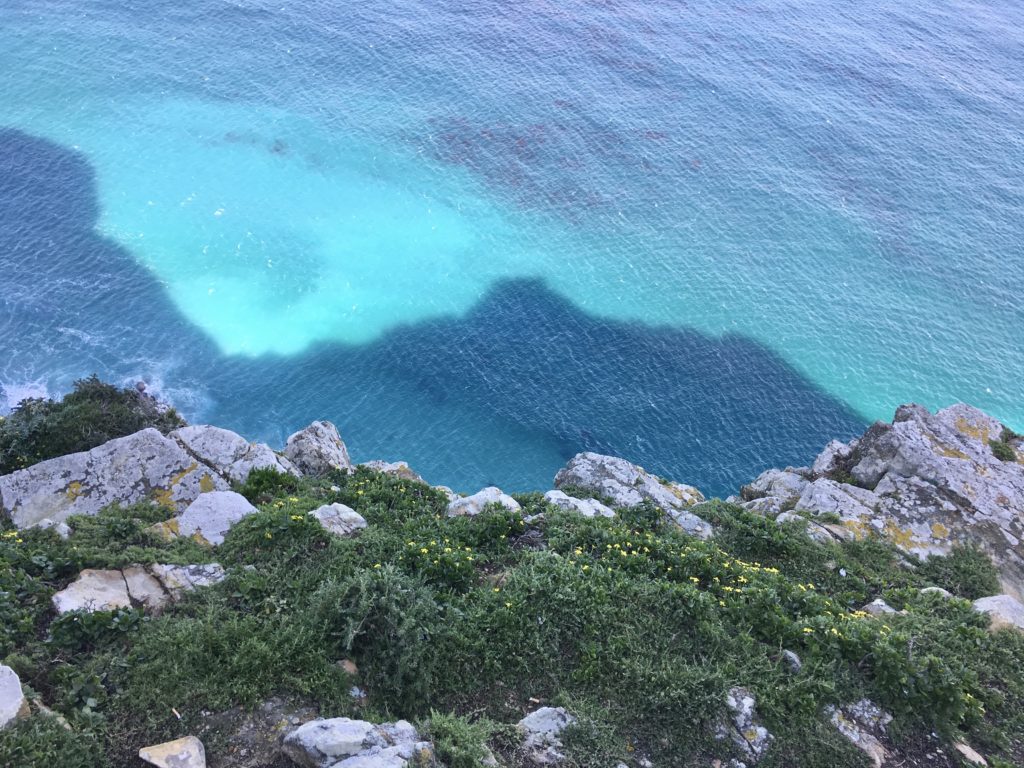
Creating Knowledge Equity and Spatial Justice on Wikipedia
The first plenary session was a presentation by researcher and data scientist, Dr. Martin Dittus. This session was recorded so do go watch his presentation. I am going to post some pictures I snapped of his slides.
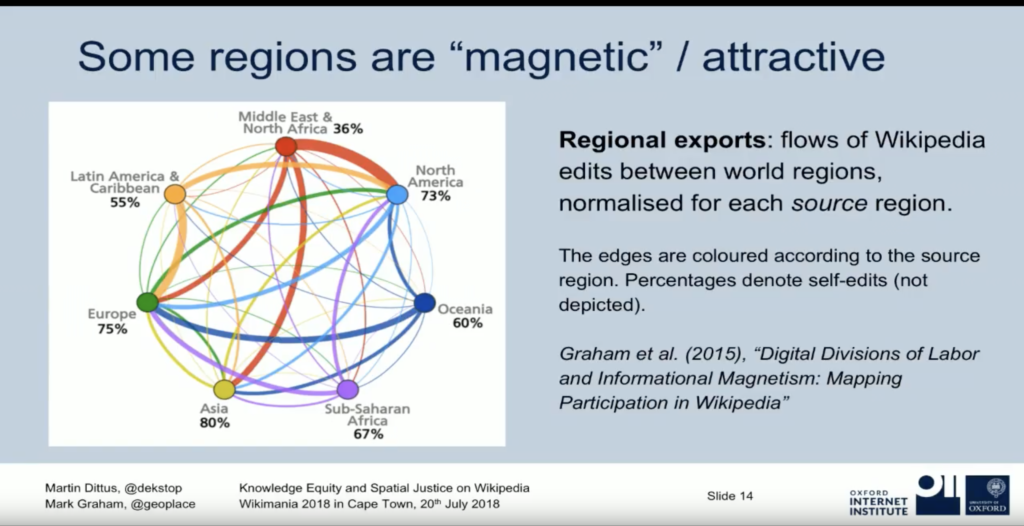
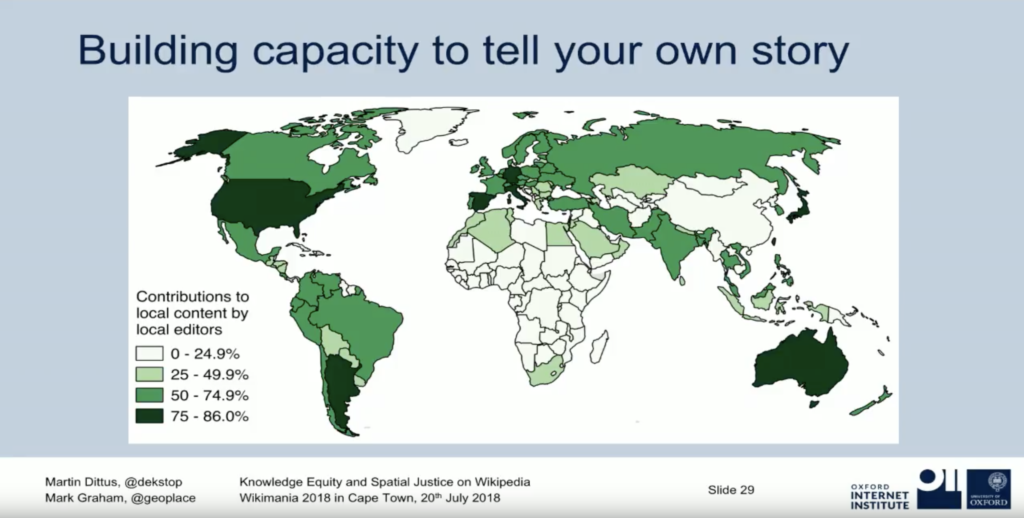
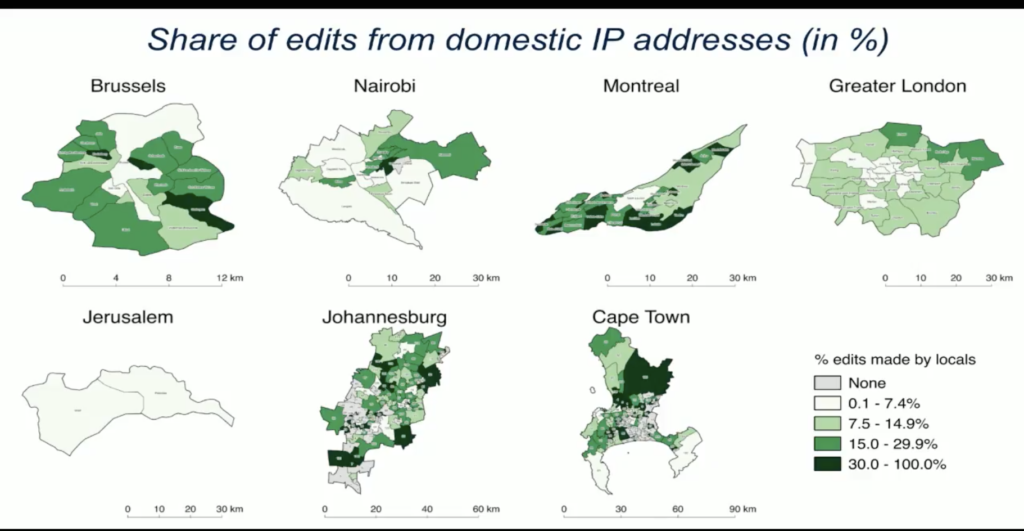
This research proves what many of us already felt. He illustrated how knowledge geography is a huge part of Wikipedia. He compared the region of the knowledge contributor to the region about which they were writing. Culture is an American export. We also feel like we can accurately assess and document any culture with authority. He also said very accurately,
In certain parts of the world it may cost more than your monthly income to go online.
What is happening online right now digitally is of great importance to those of us in the physical world.
Information geography helps us to understand how we build a narrate of the world. Our devices shape how we understand the world, and how we act there, too. The maps has become the territory: the digital is the world now.
After the plenary, I skipped out and headed to dinner with Chris and some of his colleagues. We went to Addis in Cape, an Ethiopian restaurant. This dinner was amazing. I am genuinely sorry you weren’t there. We ate it all – from delicious ciders to injera made from teff to azifa and ended the night with a coffee ceremony.
State of Research in Knowledge Gaps and State of Wikimedia Research
These sessions (1, 2) presented research about all things wiki and where we should go next. There has been a lot on gaps in the past year. There are data sets online for those of you looking deeper into gaps. Check out Research on meta, get involved, and present at OpenSym.
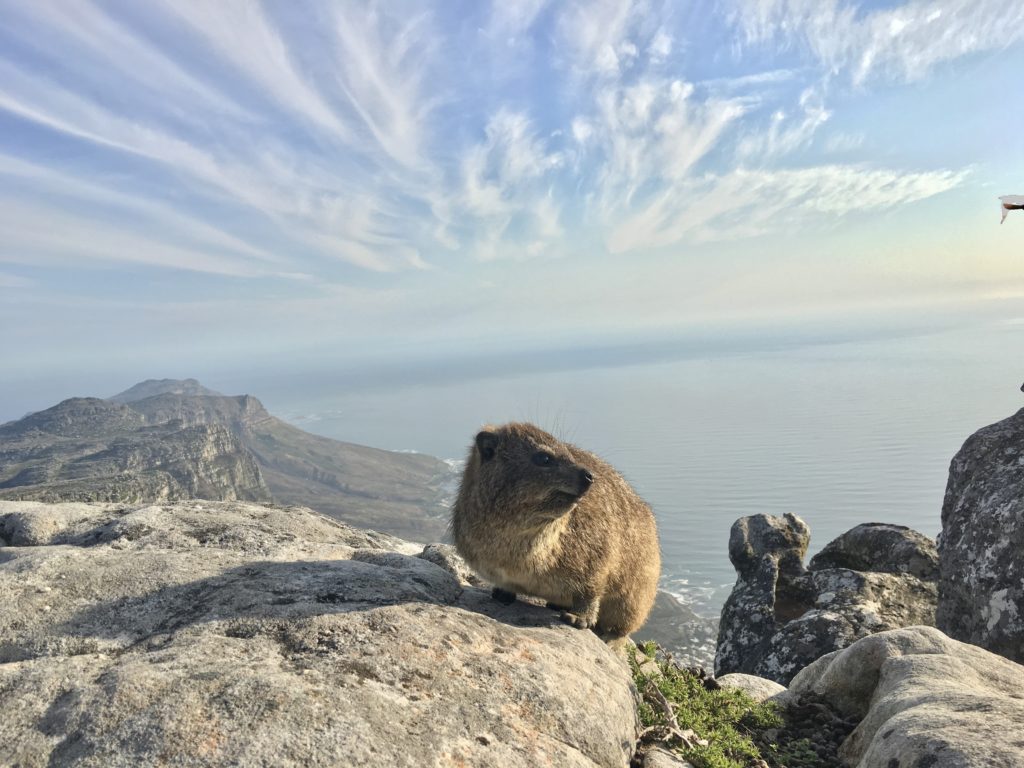
After the research sessions, Chris and I decided to go to Table Mountain. There we hiked around for about 2 hours taking pictures of amazing views and adorable little Dassies.
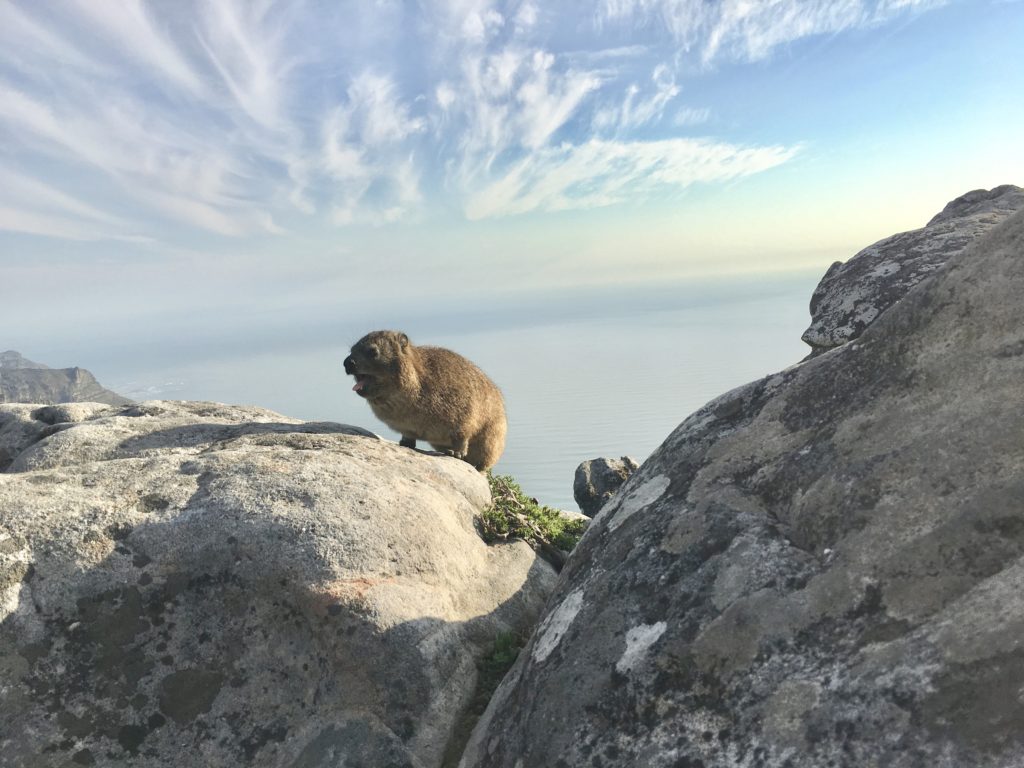
After the mountain trip, we went to the mall to shop for some new luggage. Between St. Louis and Cape Town, Delta destroyed my luggage, and I decided a suitcase wrapped in duct tape might look a bit shady to airport security. I am, however, very grateful that received my bag with the contents still inside. Sadly some of my friends didn’t receive their bags or the contents at all.
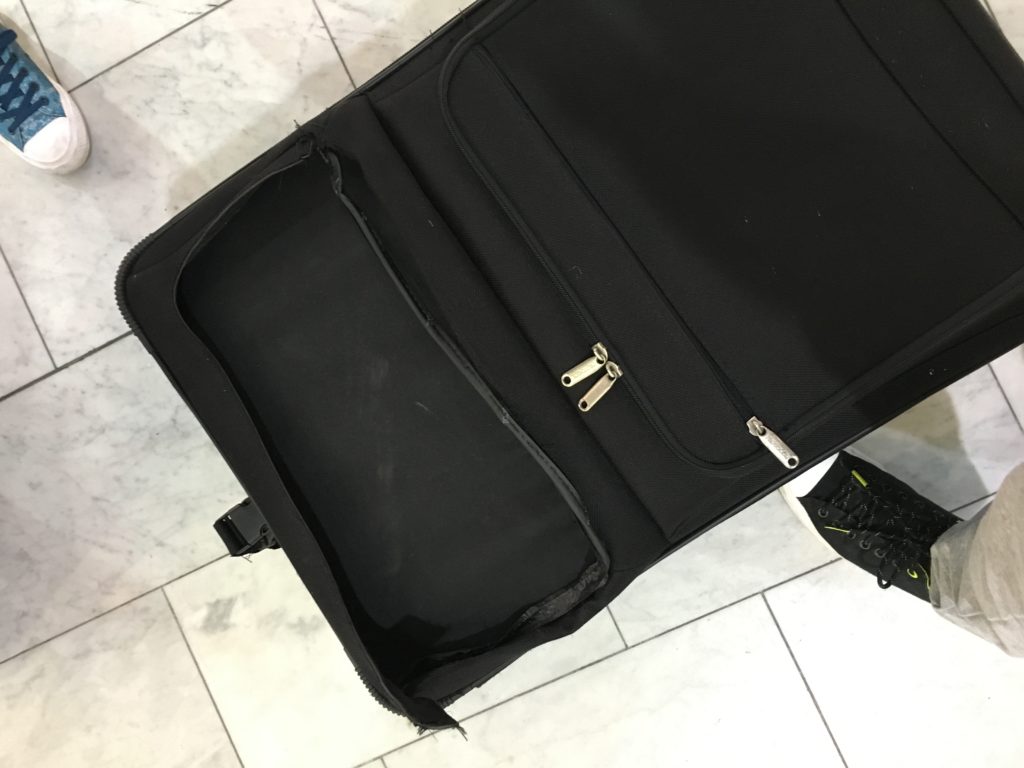
Besides adulting and shopping for luggage, we bought some gifts and ate dinner right on the water. Living in the Midwestern United States, the seafood I am able to eat is always frozen. Every dinner with seafood in Cape Town was delicious. I even got to try a local fish, Kingklip.
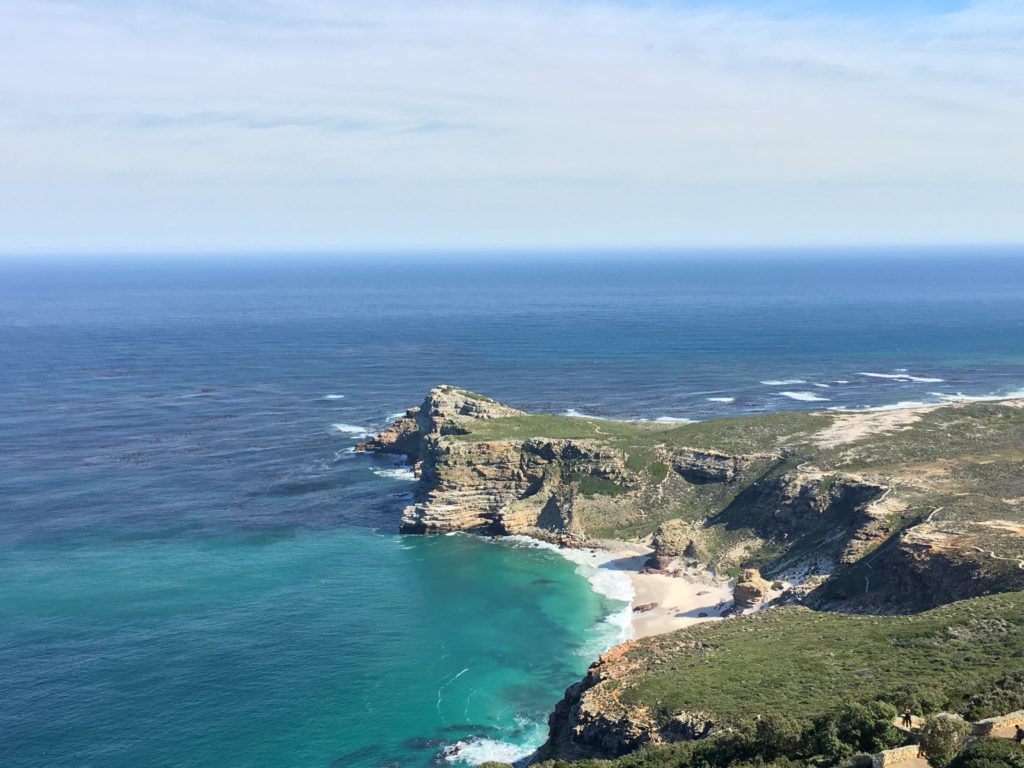
Rounding out a wonderful week, the following morning I attended one of my favorite plenary sessions:
The Dangers of Supremely White Data and The Coded Gaze by Joy Buolamwini Do yourself a huge favor and google her. She’s an incredible mind who is changing the world and everyone can learn great things from her. I appreciated Joy speaking to the crowd about how we all must go deeper than the studies and look at the data. We need to ask, “What data are algorithms being trained with? Who is doing this study? How does it work in real world settings?”
I absolutely love how she answered the following question from the audience, “How do you make bias easier for teams to identify?” She replied simply, “Employ diverse teams.” Yes. Yes! YES!
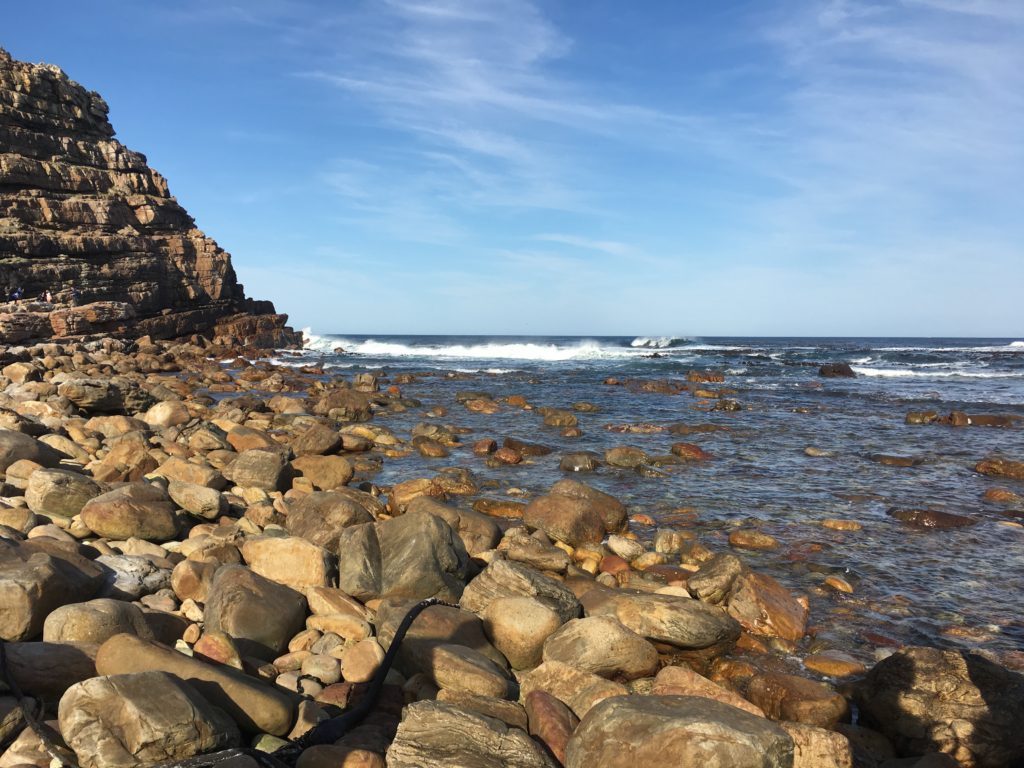
Following the plenary session, I attended sessions focusing on the gender gap. All these sessions have video recordings, and I encourage you to go watch the videos, read more, and do something about the gender gap:
Research on gender gap in Wikipedia: What do we know so far?
Women leading the way toward gender equity
Building new bridges to close the Wikimedia gendergap
What can we learn from the Feminist movement for knowledge equity?
The first and last sessions on the list actually inspired this post from my husband.
My takeaways from the gender gap sessions are: most if not all gender gap research is completed by the Wikimedia Foundation. Women don’t respond to surveys as often as men do. Women don’t get support from their community when harassed and threatened by male editors. Words convey subtle bias. The quantity of women in leadership roles in the Wikimedia movement is larger than anticipated given the population gender distribution. I personally wonder about how the leaders are being accepted in the community in their leadership roles beyond just being referred to as leaders.
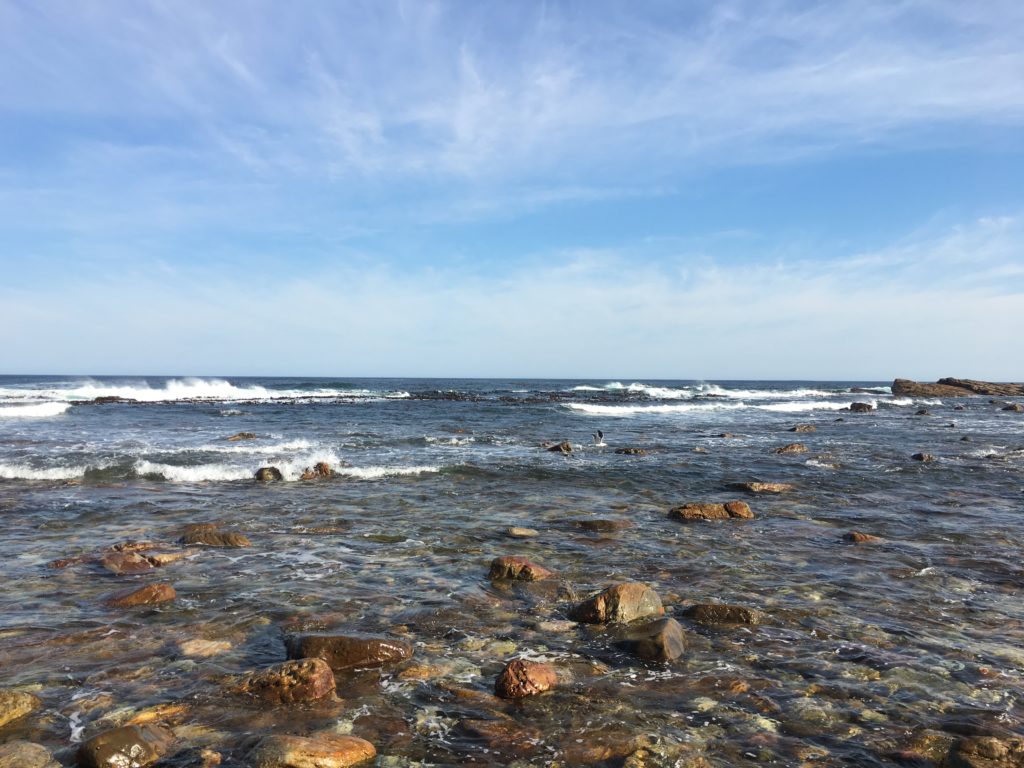
After the gender gap sessions, I dipped into Beyond the meat grinder: building better new editor experiences through research and dialogue to support some fellow qualitative researchers. The big take away from this session was more needs to be done to support communities in their own language and culture.
After a morning full of learning and discussion, I met up with some awesome women. We were planning on attending the Wiki Women’s Lunch, but we ended up having a good chat right outside the room! I always meet the best people at wiki events.
The closing party was amazing for what I saw, as I only stayed for a small portion. I hear it was really incredible. The whole planning committee really went out of their way to make Wikimania 2018 a stellar event. I was so honored to be able to attend this Wikimania and be able to live such an experience. I hope I can meet all my new wiki friends again very soon.
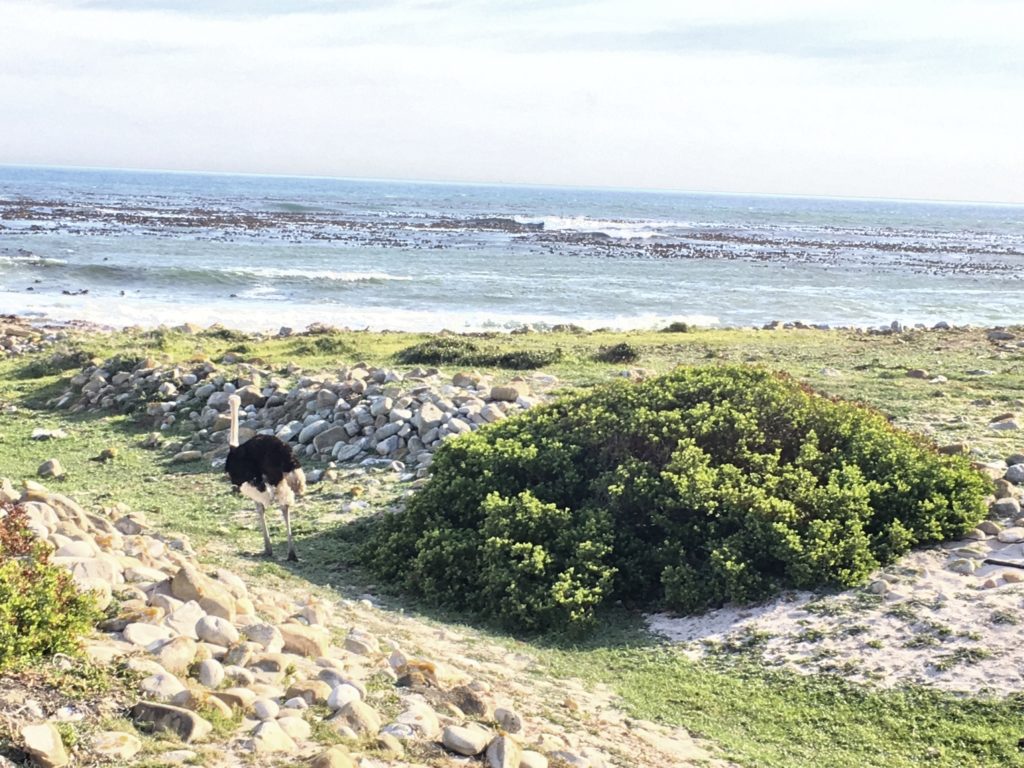
The Big Takeaway
For those of you who are looking for my overall takeaway from this whole conference, it is listening. I am referring to the listening you do with your best self and from your soul. Listen because you want to hear that other person. Listen because you want to honor their experience. Listen because you want to understand what it is to be where they are.
If we are going to go anywhere in this world, it is together. We cannot put one before the other anymore. It is not an “eat or be eaten” world. It’s collaborative, for “two heads are better than one” really is true. To create something truly representative of the world, we need to work together. This may mean one person talks less in order to serve the goal of equity. In the same vein, it is cultural appropriation of the worst kind to take a piece of a community’s culture and write about it how it makes sense from an outsider’s perspective. No one can know everything, but don’t we want to have the closest truths out there for the knowledge seekers?
Reflections on Learning Days at Wikimania 2018
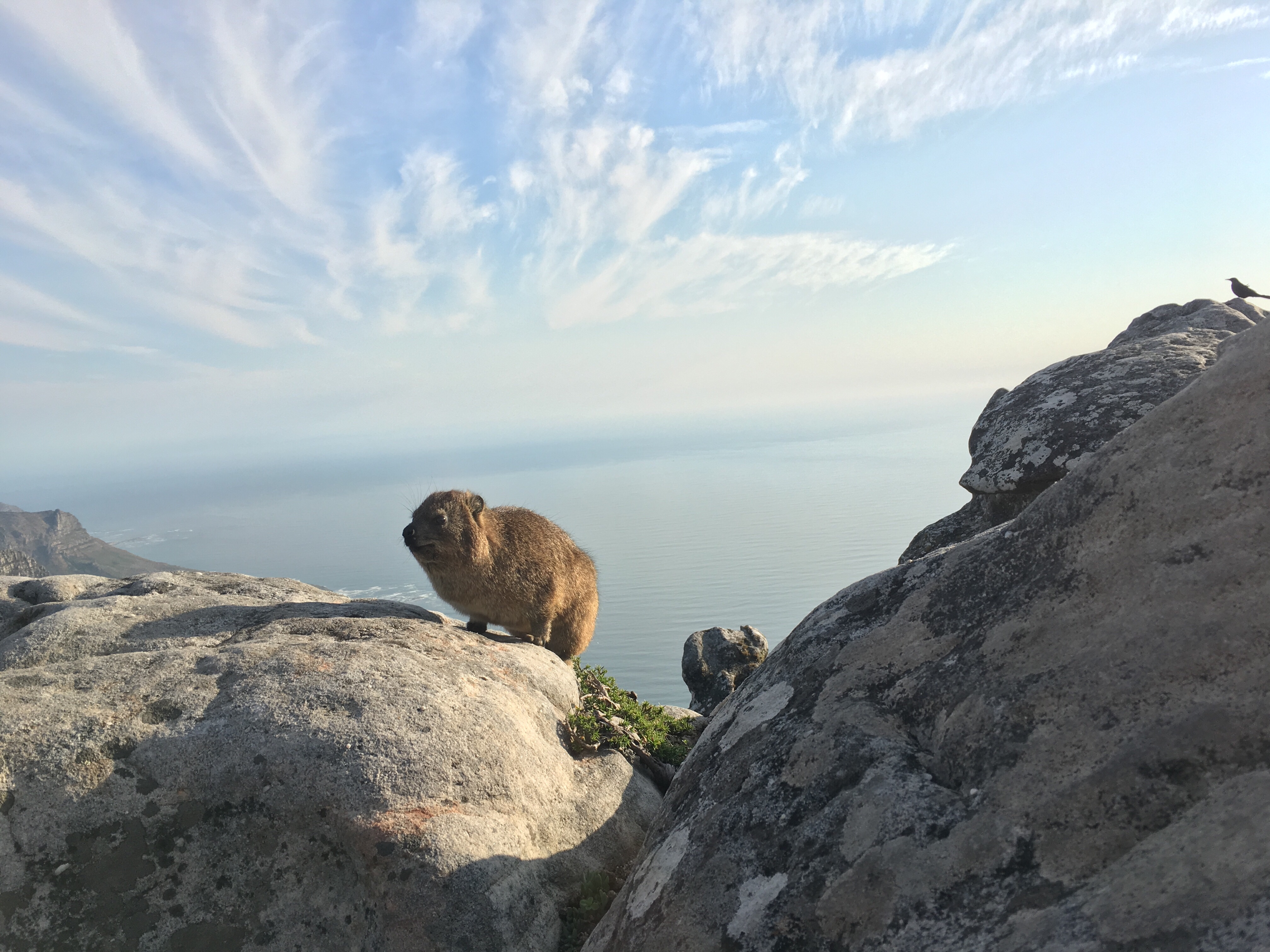
A couple weeks ago, I started an adventure I never imagined I would. I traveled to Cape Town, South Africa to attend Wikimania 2018.
The past year has been amazing, getting to travel the world for the sake of free knowledge (1, 2, 3, 4). For this trip, I applied for a scholarship early and thankfully, I received a scholarship. This scholarship was for conference attendance and room and board, which made the trip much more attainable.
I left St. Louis midday on a Monday, flying through Atlanta and Paris before arriving in Cape Town late Tuesday night. I was optimistic about my ability to be bright-eyed and bushy-tailed (awake and aware) Wednesday morning for the start of Learning Days, but I think I overestimated my abilities.
After a very important hunt for coffee, I arrived 15 minutes late for Learning Days (yikes! Apologies, friends!). Learning days is a pre-conference set for upcoming and emerging leaders in the Wikimedia movement. It gathers us together to learn best practices and collaborate on challenges in the communities. I can personally say I learned loads from the other attendees just during discussions and our conversations between sessions. This is my absolutely favorite part about attending conferences in the Wikimedia movement – the natural way in which you learn so much just by talking to people. For the content that really stuck with me from Learning Days, let’s just say I have pages and pages of notes! I’ll try to keep my summary to just a few things.
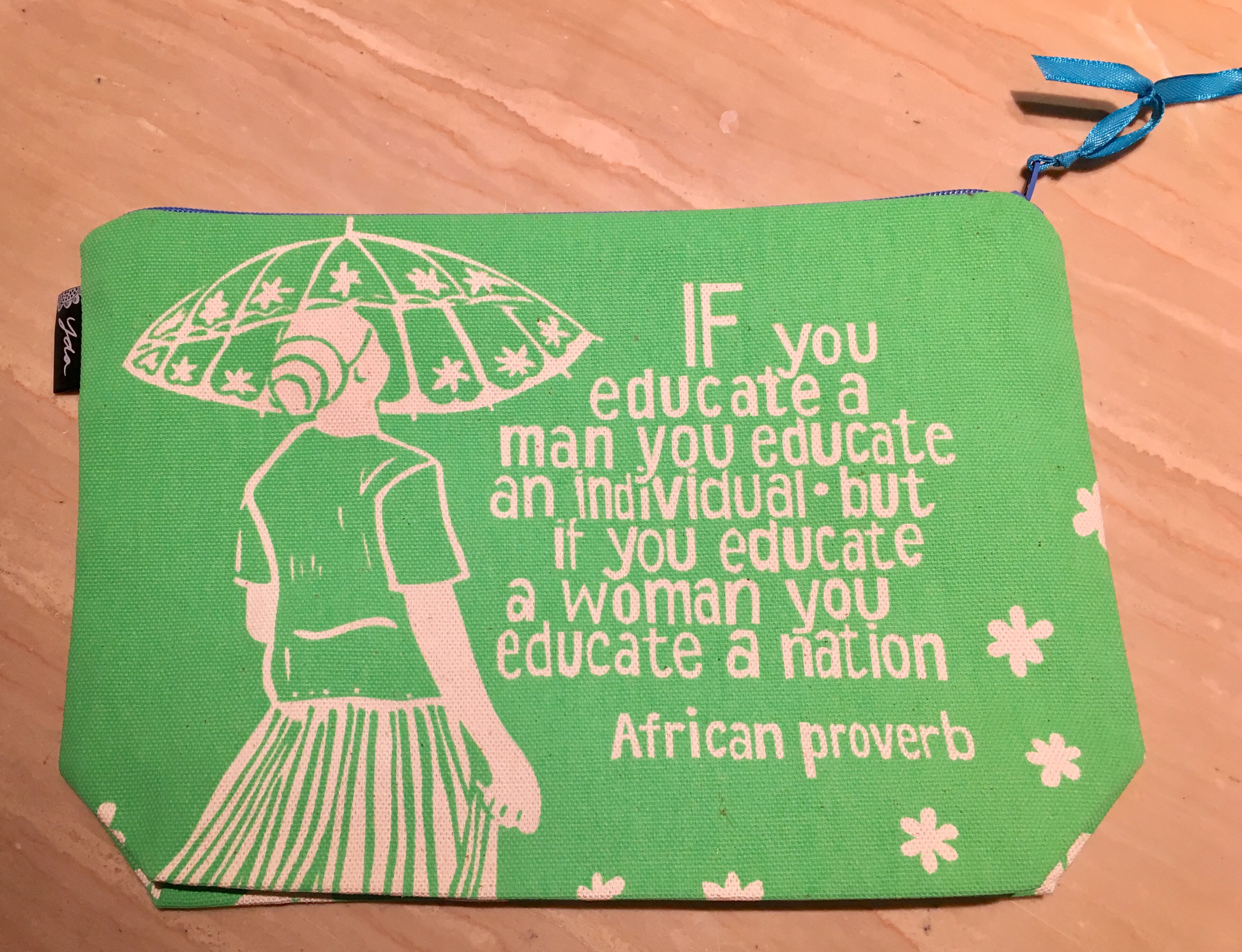
The first piece that is highly important that I think everyone should continually practice: listening. Listening can be powerful and listening can be dangerous. Let me explain. Through listening, one can learn, build empathy, connection, etc. Through listening, people can also be tricked.
You see, it is a very dangerous thing to listen. If one listens one may be convinced; and a man who allows himself to be convinced by an argument is a thoroughly unreasonable person.
-Oscar Wilde, An Ideal Husband
Critical listening is, well, critical. Exercise your listening skills by doing the following:
- Be present. Don’t think of other things or tinker on your phone while someone else is talking. Give them your attention and show that in your body language (eye contact, turn your body toward them, ignore your phone, etc.)
- Don’t be quick to solution. We are creatures who like to solve problems, but maybe now isn’t the time, or the person just wants a sympathetic ear. Just listen.
- Ask clarifying questions. Maybe you don’t know a detail or you want to make sure you’re fulling understanding, so ask. It’ll show you’re engaged and want to know more.
There are three types of listening:
Listening to win: listening to find information you can use to aid you in some way.
Listening to fix: listening to develop a solution to the issue at hand.
Listening to learn: listening to know more. This is the most engaging.
We learned about these different types of listening and how to recognize them in ourselves. We did this for the sake of community listening. To practice these we employed them during an exercise with a technique called Collective Problem Solving. We discussed community needs we had and assigned each need to a table. We then got to pick which table we joined. The tables were developed out of the needs we discussed, which included: community health, resources, volunteer retention, and cross-collaboration within the open movement.
During the Collective Problem Solving, we practiced the stages of good listening. First, we were listening to understand, and responding with clarifying questions. Then we asked deeper questions to get deeper understanding. Then we proposed solutions and worked collaboratively to understand the deeper problem and develop a solution. The solution to our table’s problem was so simple, but hugely impactful to the community health and could even reduce volunteer burnout, because the debates required over this topic would thus be reduced! Listening might just be the solution to world peace, or Wiki-peace, but for now, just start small and be a good listener.
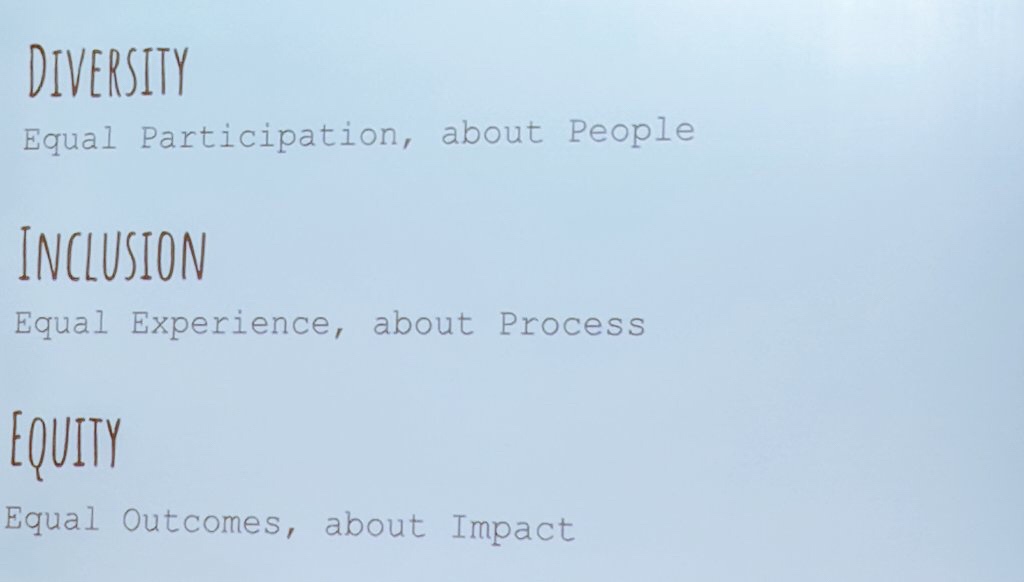
We also talked about the differences among the scope of diversity, inclusion and equity. While the definitions above do not encompass the differences among these concepts culturally or linguistically, they do give us a starting point to help us recognize who is here and how they are involved. Diversity is equal participation and is about people. Inclusion is equal experience and about the process. Equity is equal outcomes and about the impact. These concepts were underlying themes during the whole of Wikimania. I’ll go into more detail later.
The next part that really stood out to me was storytelling for projects. This is something everyone needs to do because we want to have people engaged and caring about our projects. This framework tells you how to structure your story to make a good story that is impactful. Follow the ABCD framework:
- Attention – get the attention of the audience
- Because – tell them why it matters
- Content – share the story
- Do – call to action
Did you know the use of the word because increases engagement by more than 30%? Make your project stand out by telling the story and why it matters. You know your project, but others don’t. Practice storytelling for your next project and see what impact it has on engagement or acceptance. Even do it on a smaller level in daily communication and see how things change.
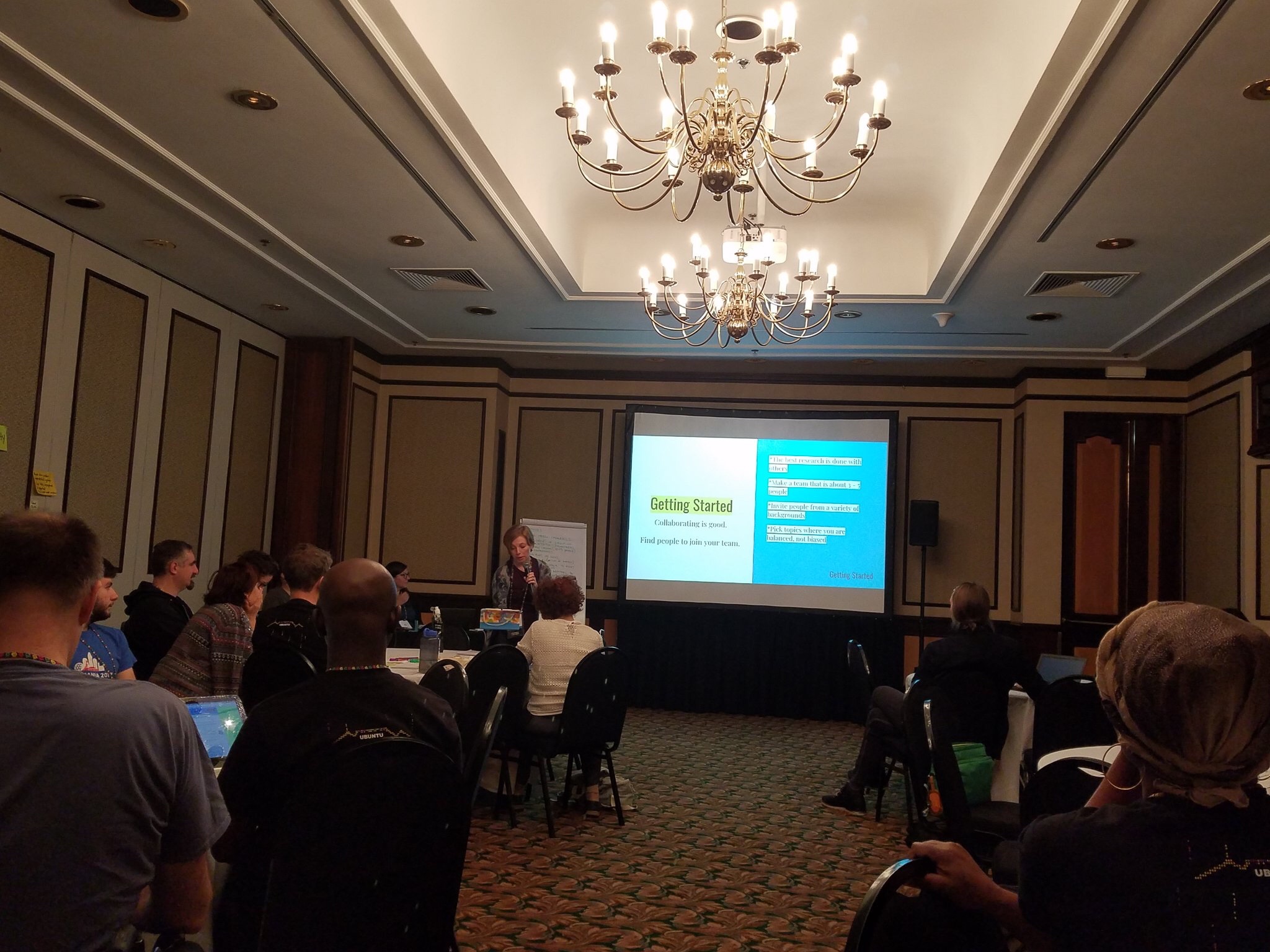
During Learning Days, I presented about Surveys and how to properly design them to get the most out of them. Learning how to develop surveys is a highly important skill because when done correctly, it can give you the information you need. Note, I said information you need here instead of information you want. That is an issue I see with so many surveys and research studies. People have an idea of what they want to know beforehand and unwittingly ask leading or biased questions. This will not get the clean information and lead you into developing solutions for the community that they don’t really need! Check out my slides and the handout on Commons to get your survey is on the right track, and even to find out if a survey is the right tool for the job. Feel free to share and contact me if you would like some survey or methodological support for your project.
Oh, I hinted about bias in the paragraph above. I gave a lightning talk about bias. If you ever go to an event, go to the lightning talks. They’re always great because you can learn so much about the rest of the wiki community in such a short period of time.
The next thing we did during learning days that really stood out to me was the final activity on the second day. It stood out to me because I am an analytical thinker. Analytical thinkers are great at big picture thinking as well as seeing the complexities and nuance in a sea of grey. I cannot think of the name, but the activity was the one where there are two words placed on opposite sides of the room. You have to pick one, or a point in the middle. I dislike these activities because I generally think for the whole and not for myself. This is great because people like me help the NGOs of the world do amazing work, but it’s bad for activities like this because I cannot stop analyzing the situations in which one concept would be more important than the other, and visa versa. The world is less black and white but more grey, and often, ‘it depends’ is an appropriate response for this activity.
With that being said, I highly enjoyed Learning Days and hope to see it continue. I do hope, however, that some sort of cohort model can be developed so attendees can connect over a period of time before the actual Learning Days event and even after. I find the issue with in-person events is there is great momentum and excitement while we’re all together, but then we go back to our lives afterward without a clear plan to continue the enthusiasm.
Speaking of enthusiasm, you can clearly tell I am excited about this event because I have so much to say. The main event hasn’t even started at this point in my narrative, and this post is already pretty long, so I’m going to make it into two parts. Come back tomorrow for my reflections on Wikimania 2018. See you then.
Reflections on Wikimedia Leadership Bootcamp 2018
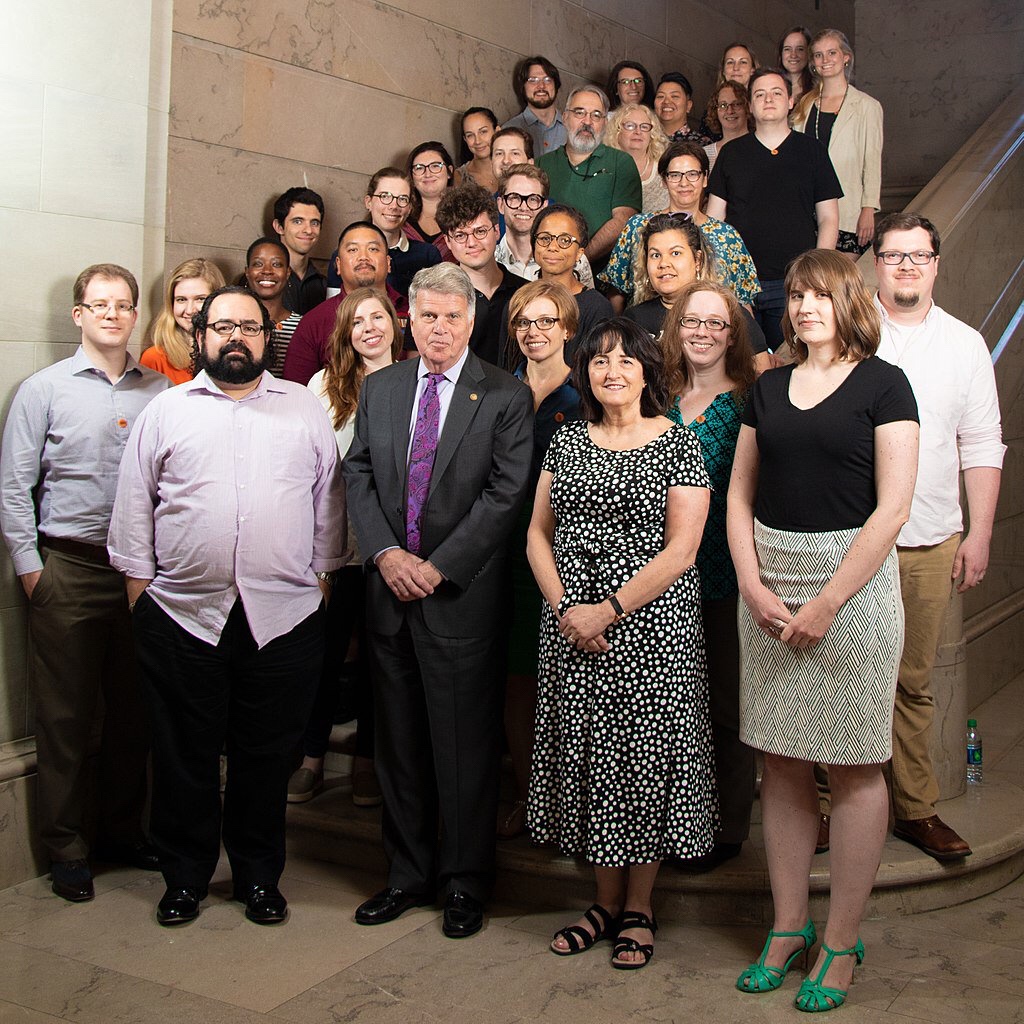
The email caused me a cacophony of emotions. I deal with imposter syndrome (a lot) and I have been rebuilding myself after post-PhD depression. I don’t recognize my accomplishments, and still doubt my knowledge and skills. Getting invited to this Bootcamp surprised me, but validates that what I am doing is good and impactful. I have traveled to San Francisco, Wikimania, Wikimedia Diversity Conference, and Wikipedia Day with Wikimedia NYC. I have done a lot of good in the past year, but it’s hard to remember that when you’re not receiving a paycheck for that work. For the better part of a decade, I have been working “for the greater good” and constantly have to remind myself of my own value. It’s invitations and recognition like this Bootcamp that help me with that process.
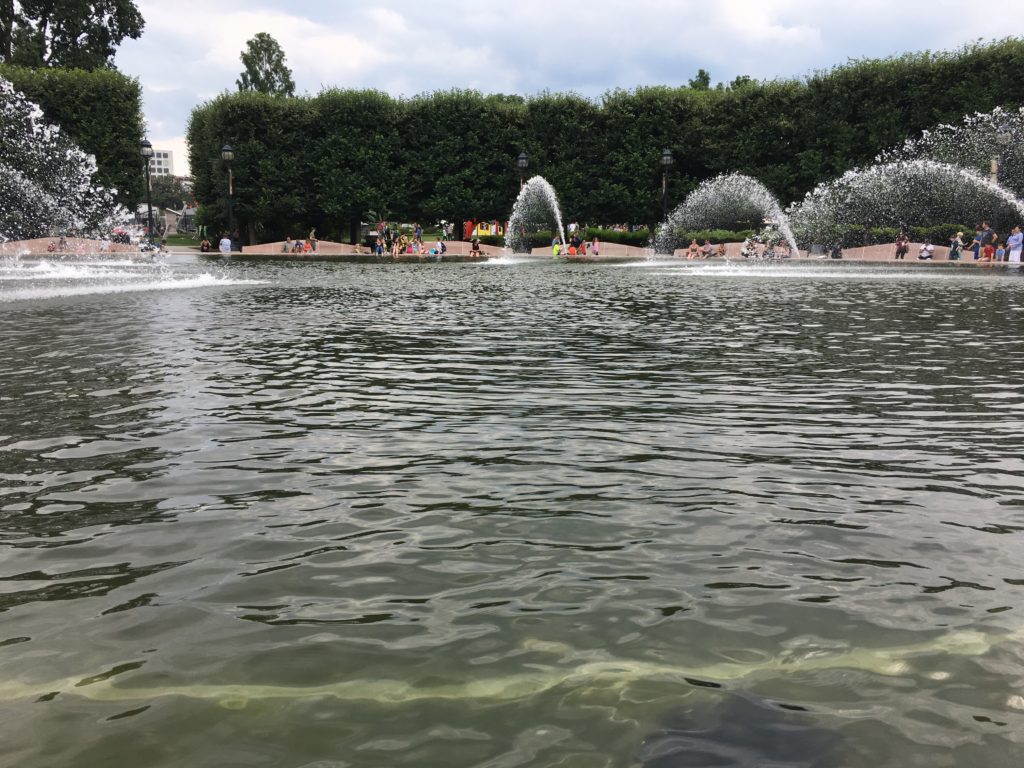
A few months after the invitation email, I booked my flight, confirmed my hotel, and I was on my way to Washington D.C. I was so excited because I have never been before. I booked my flights so I could have a few hours before the Bootcamp and after so I could wander around town. I decided to visit the National Museum of American History on the day I arrived. There was no way I could possibly do everything I have on my bucket list and I now find out fall is the time to go – no crowds! I’ll certainly have to plan a follow-up trip.
Now, let’s talk about the Bootcamp itself. First of all, the event taking place in the National Archives was enough to get me there. I was totally geeking out and really wish we had time for an edit party (my new, accessible term for edit-a-thon). The smell of books intoxicated me. Knowing uncounted volumes of information exchange occur because of this institution, it was really overwhelming. If you have a chance to visit and just ask questions, do. The people in these knowledge institutions are the lifeblood of the free knowledge movement. They want to share the information and help people develop meaningful connections with their endless treasure trove.
Everyone at the National Archives was completely accessible, and David Ferriero, Archivist of the United States, spoke to us to tell his story about information sharing and Wikipedia. He is the first librarian to serve as the Archivist of the United States and is doing incredible work to connect the community with content.
The rest of the schedule for day one was packed with keynotes about engaging with community, developing partnerships, safe spaces, and a crash course in Wikidata. Kelly Doyle started the day talking about engaging new audiences. She asked us to think about what we share with the users. She suggested asking questions like, “What can I provide the user?”, “What can the user provide?”, and “What is in it for the user?” These questions will help frame the program development and help enhance the possible effectiveness of the programs. This makes total sense as we need to help the community members identify with the Wikipedia movement in their own ways. Their connections and reasons for participating will all be different, but we need to make them all feel welcome and valued.
Next Ariel Cetrone from WMDC talked about partnerships. Some key pieces that stuck with me were questions she asks herself when developing new partnerships. The major question was, “How would I have liked to have learned about Wikipedia?” This is huge. We all know there are barriers and challenges to finding the information and getting involved on Wikipedia. I know there are some things I would have like to have learned differently. In some ways, getting started on Wikipedia is like water rushing down a hill: you can’t control where it goes and it’s a continuous flow. To the people working to make this process easier and who work with new contributors each day, you’re amazing and keep doing it!
The next session that really stuck with was Sydney Poore talking about Safe Spaces. I have long reflected on harassment and how bias, social dynamics and gender perception play into interactions in online communities and at in-person events with the people from the online communities. For policies aimed at addressing issues related to harassment, the Wikimedia community uses “friendly spaces” and “safe spaces” synonymously. These phrases have 2 very different meanings to me. I discussed this with another Bootcamp attendee, and they agreed.
A friendly spaces policy would be one to make spaces welcoming. This would be one addressing microaggressions and encouraging active listening. Most people are unaware of how their behavior impacts others and how it might be offensive to others. One example is when men interrupt and talk over women. Unless called out, they might not recognize it. Sadly, it is still socially accepted when a man interrupts or speaks over a woman because it is such a common practice. Friendly spaces would educate attendees about some common behaviors to bring awareness through education, and help create the friendly spaces this movement needs in order to meaningfully close gaps. For now, even though the friendly spaces policy exists, it only serves the purpose of a safe spaces policy. I look forward to a future truly friendly spaces policy.
For a safe spaces policy, this would be one addressing harassment and violence. There is a lot to be said about harassment, so I will just say this: I look forward to the development of tools and practices from the Wikimedia Foundation to address harassment in the community. This is not something we can expect volunteers to handle. Harassment is unacceptable and needs to be made so in the community.
After that heavy conversation, we left for dinner and drinks. Of course, we had to go to the place with a huge barnstar, Hill Country BBQ. Not the most vegetarian friendly menu, so I stuck with the macaroni and cheese and figured I’d grab some fruit and veg from the market later. I ended up grabbing drinks with friends instead. It was a better choice!
On to the second day of the Bootcamp! We talked a lot about community. There was much said about tools to make contributing easier, and ways to change thinking about contribution. Rosie Stephenson-Goodknight spoke about how she started editing after her son attended an edit-a-thon (read: edit party). She emphasized how important providing a positive experience is at events. It is not about the number of edits or new accounts created, but community developed.
We also discussed the value of contribution. Much of the measurement of success in the Wikimedia movement is considered in quantitative measures. I have a problem with this because one cannot measure all things in numbers. One cannot measure the impact an event had on a person by the presence of their body. Nor can one measure the impact an edit party had on a person’s information literacy skills. These “softer” benefits cannot be measured in numbers: number of people, number of edits, number of articles created.
Many of us at the Bootcamp complained about the focus on quantitative measure in grant funding. Simply some of the great work we are doing cannot be plotted on a graph, but the lack of quantitative metrics does not mean it has no value. We need to change the thinking in the Wikimedia movement away from impact measured in numbers to impact measured in value.
Following the community discussion, we presented our lightning talks. The lightning talks were another amazing part of the day. I was just completely overwhelmed by the amazing work my fellow Bootcamp attendees were doing. I was in awe and so inspired. I sincerely wish them well in their work, because it is all so very important. Later I plan to write a post about my lightning talk topic: my open relationship.
After the weekend was over, we discussed what could have changed or stayed the same. Our one biggest complaint was not having enough time together. Many of us, if not all, decided to start a group so we could stay connected and continue our growth. I suggested this Wiki Leadership Bootcamp turn into a year-long cohort where we meet in-person one time, but we could each take turns hosting video chats the rest of the year. There were so many things we wanted to know and learn from each other. This perhaps would allow the time and space for that to happen. Thank you again to the organizers of the Wiki Leadership Bootcamp, WMDC and the National Archives for making this happen. I have some new collaborations and projects to move forward on, and am excited to see what happens with future Bootcamps.
I celebrated Wikipedia Day with Wikimedia NYC
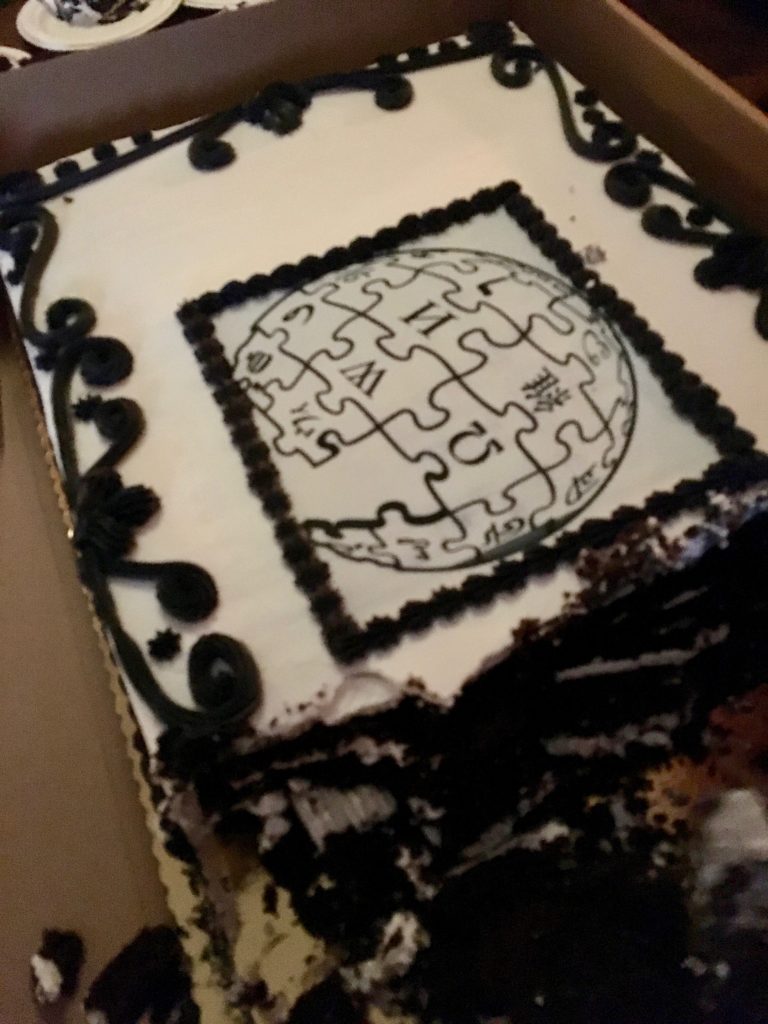
On January 14, I celebrated Wikipedia’s birthday in New York City. Wikimedia NYC hosted a celebration for the day Wikipedia first went public – Wikipedia Day! There were loads of Wikipedia Day celebrations around the world. These celebrations happen each year around January 15. This just happened to be the first celebration I attended since I started editing Wikipedia.
Lots of amazing circumstances came together to make this trip possible. First, Sherry Antoine from AfroCROWD and I shared a room at the Wikimedia Diversity Conference. We talked about bias and her work with AfroCROWD connecting people with Wikipedia. She said Wikimedia NYC and AfroCROWD focus on showing people how they can use their natural interests on Wikipedia. What a great way to get them hooked! She suggested I come present in New York as part of Wikimedia NYC’s Wikipedia Day celebration. I told her I would love to come! About a month later, one of the Wikimedia NYC Board members, Ryan McGrady, emailed me. Wikimedia NYC was able to provide me with a travel scholarship and another Wikimedia NYC volunteer offered to host me.
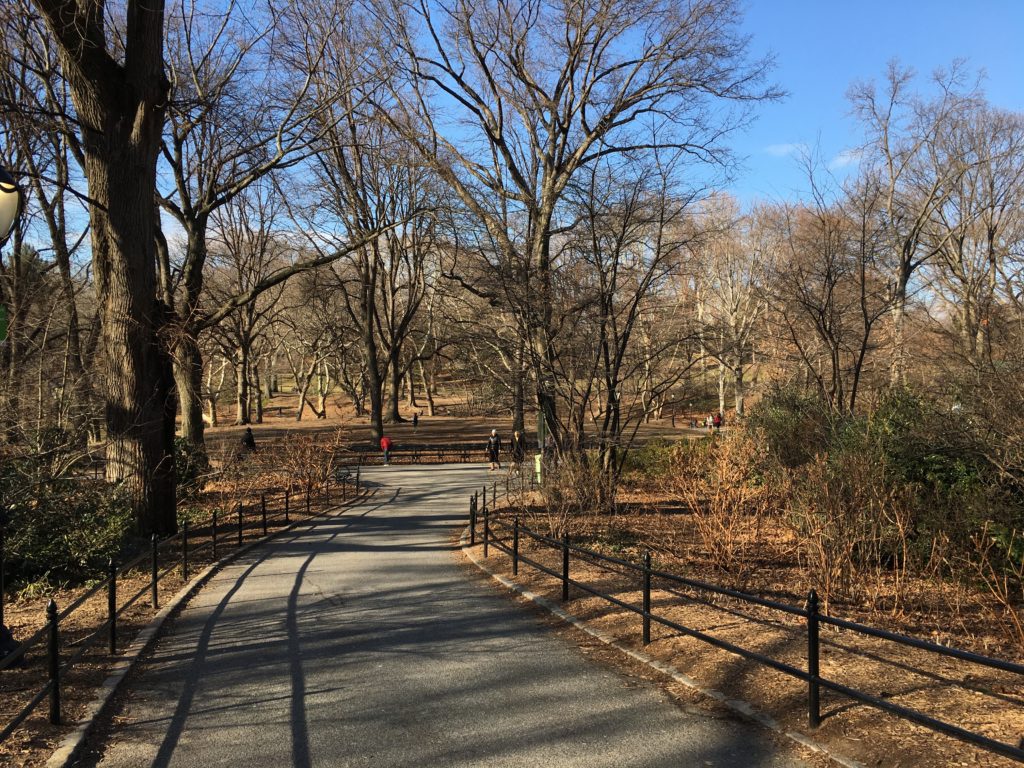
After a quick airfare panic – the price went up from $270 to $306 overnight! – I booked my flight to New York City. I had never been before, so I was beyond excited. In Sweden, Sherry and I swapped stories about how we always wanted to go to each other’s homes. I had always wanted to go to her home of New York and she always wanted to visit mine of the Midwest. We each got a chuckle as our homes are just home to each of us. Now that I have gone to New York, I will certainly have to figure out a way to get Sherry to the Midwest!
I took an early flight on Saturday morning so I would have a little time to settle in and see the city before the event on Sunday. Due to the tunnel construction, instead of taking the subway, I ended up taking a taxi to the place where I was staying.
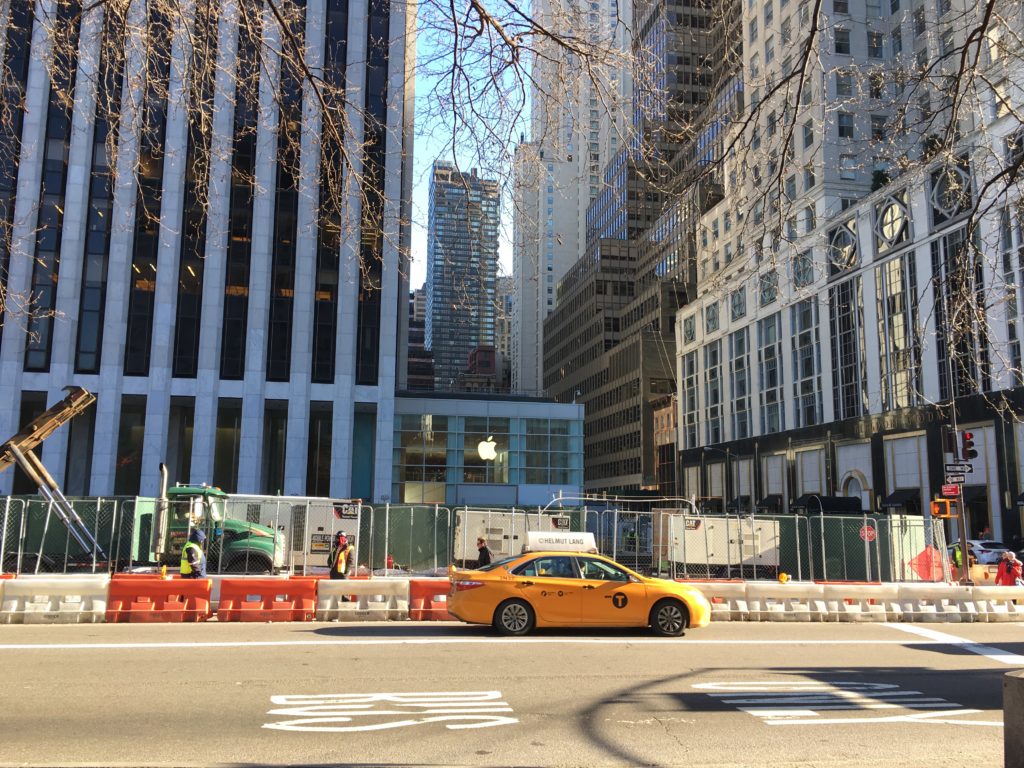
Taking a taxi was a little funny in itself. I flew into LaGuardia airport. It was really quiet, and the few people I saw went outside to board busses. I eventually found the taxi signs and eventually a yellow path painted on the ground. I started following the path. After a while of following the yellow path, I started to wonder how long this line gets at busy times. I finally arrived at the taxi stand and there were 3 attendants and 5 taxis sitting at numbered signs. One attendant told me to go to number 3. Another told me to get back in line. Another told me to go to number 4. The second attendant told me to get back in line. The attendant who waved me to number 4 waved me back over and yelled at the second attendant. I wasn’t sure what was going on. I did eventually take the taxi at number 4.
It was neat looking out the window on the way to Brooklyn. I saw pigeons huddled on a sunny rooftop. I observed a lot of graffiti on just about everything. I always find graffiti as an interesting art form.
Where I stayed was a beautiful neighborhood. My hosts told me the history of the neighborhood and how it all came to be. Turns out, my hosts are academics like me! They also have a large collection of books, so I felt right at home.
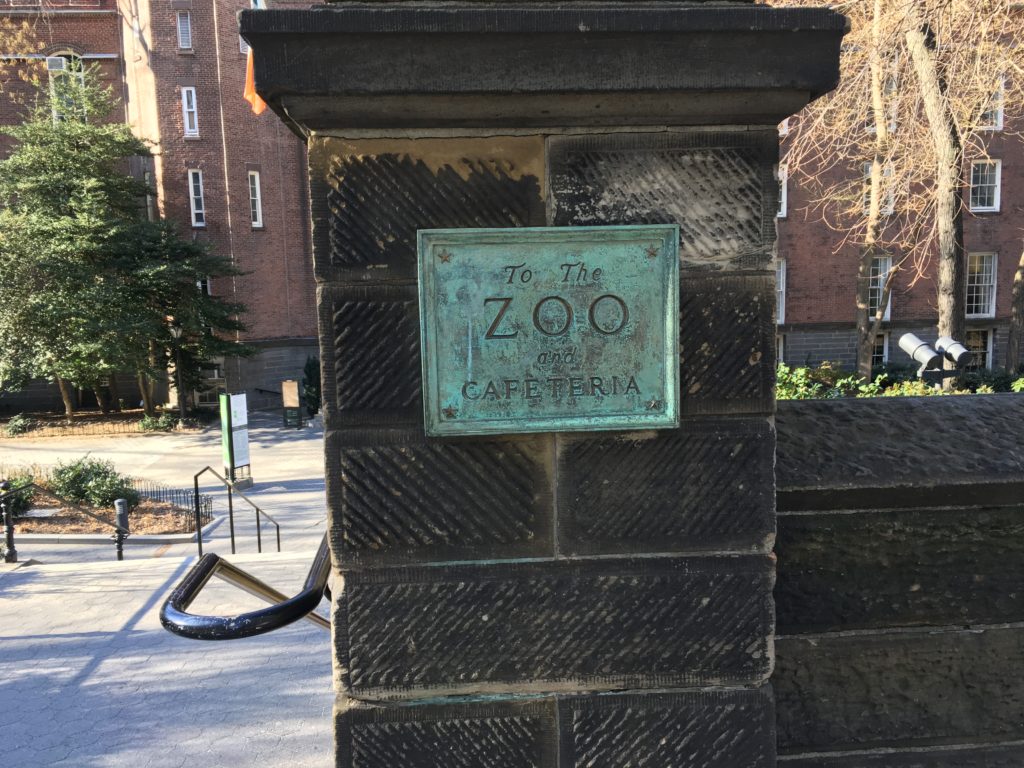
That evening, I went to dinner with a few fellow Wikipedians. We walked to Numero 28 Pizza. It was great. I learned all about choices of pizza, mozzarella, bakery items, fish, and produce. The New York City version of feeling people out involves asking where they get their pizza/mozzarella/other food item. In St. Louis, this is like the dreaded, “Where did you go to high school?” question.
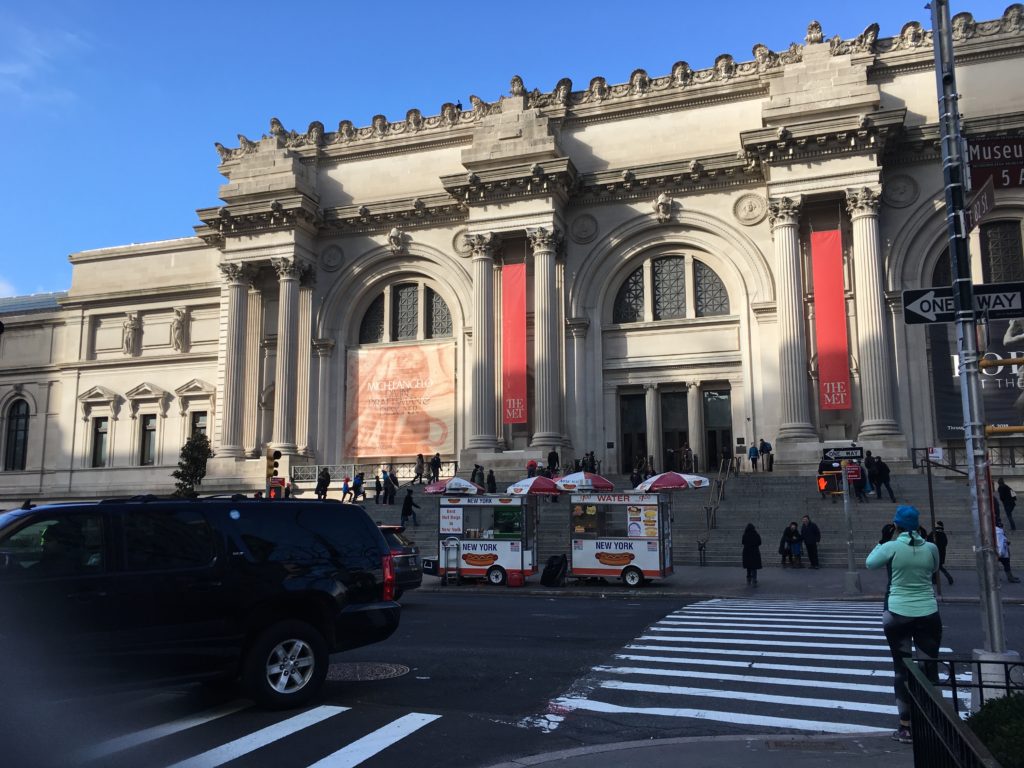
The next morning we all headed to the Ace Hotel, where Wikipedia day was being held. I got to meet loads of new friends and reconnect with old friends. Lots of people were interested in implicit bias. It’s a good topic to talk about.
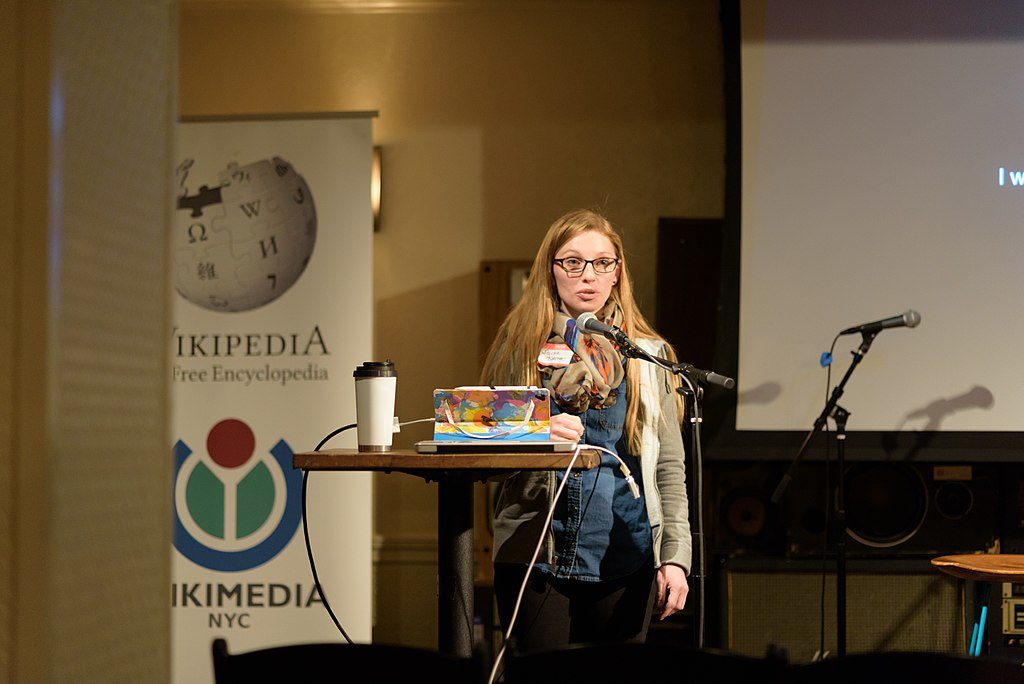
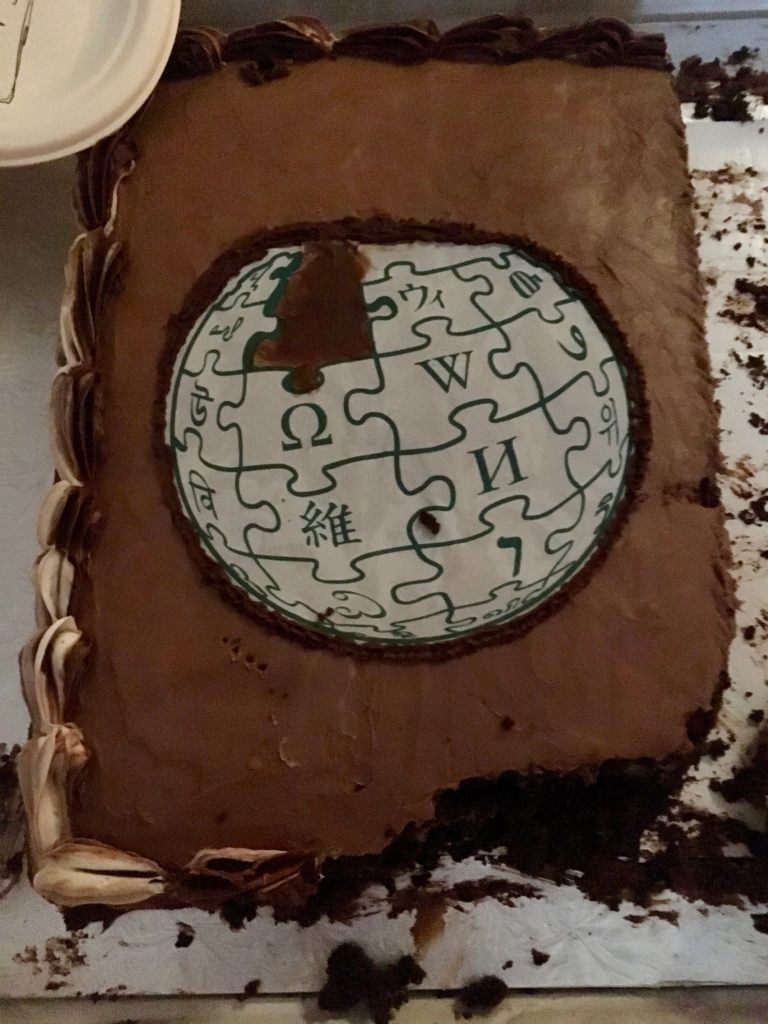
Serious thanks and admiration to the organizers. The event went well. Your preparation and planning paid off! Also, the food was good and well-labeled. If you have food allergies, you know how amazing this is. The labels didn’t just have common allergens listed (like “contains peanuts and soy” but they had the actual ingredients listed! There were vegan and regular cake options. The cake was delicious! As illustrated by the picture, everyone else thought so too!
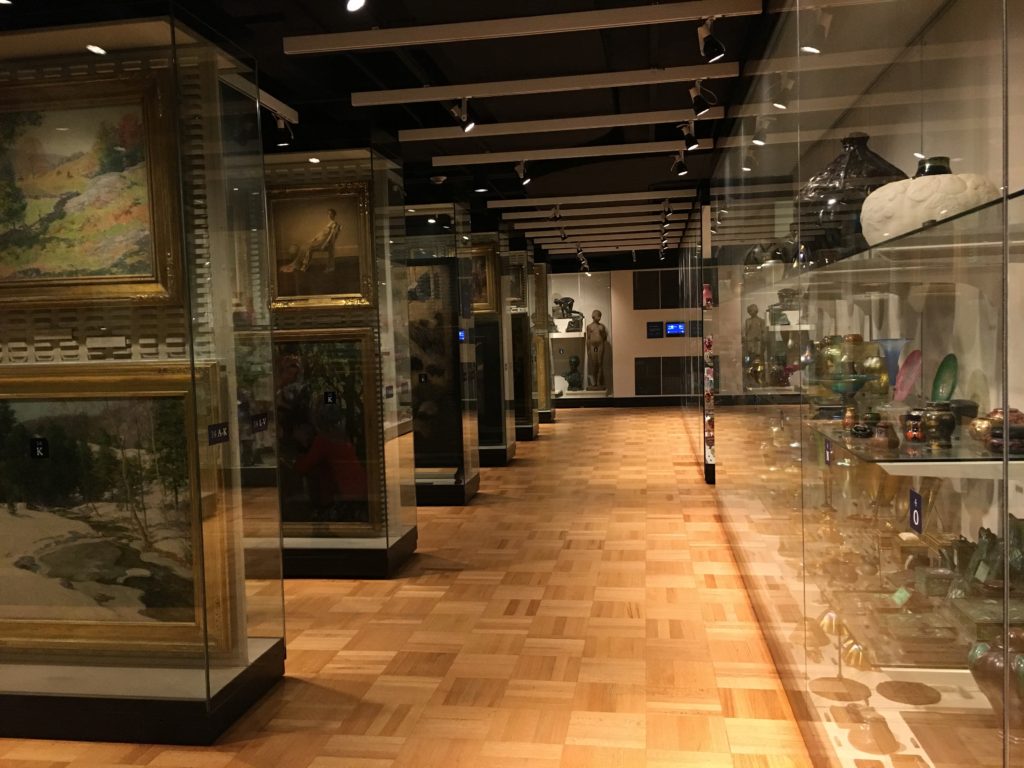
After the closing remarks, a few of us Wikipedians headed upstairs to the Breslin for a well-deserved drink. I always get a laugh at the drink names different bars have on their menus. Sometimes I think it’s a contest of who can make up the wildest drink name. An example from the Breslin’s drink menu: Captain Corto Swizzle.
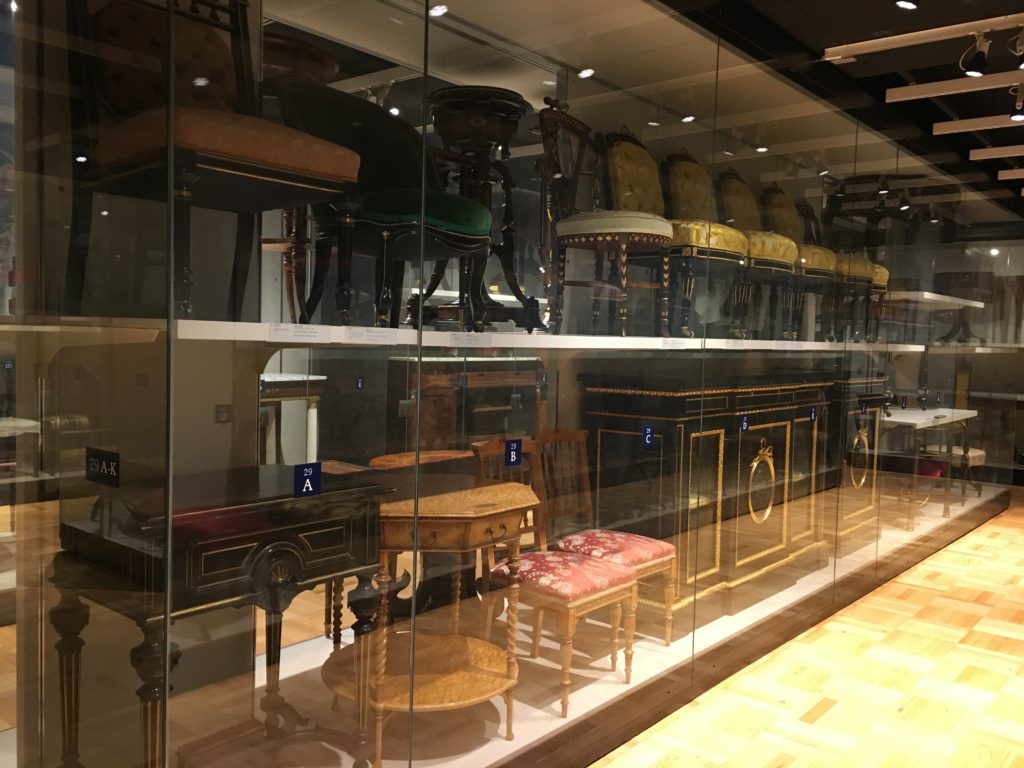
During our chat, everyone gave great suggestions on what I should do the following day while touring the city. Ultimately, as I had my heart set on the Metropolitan Museum of Art, I decided that would be my main focus. I had orders from my kids to get Pokémon from the Nintendo store, so between the MET and the Nintendo store I planned to check out several of the traditional tourist stops: Central Park, Rockefeller Center, and the Apple Store being built on 5th Avenue.
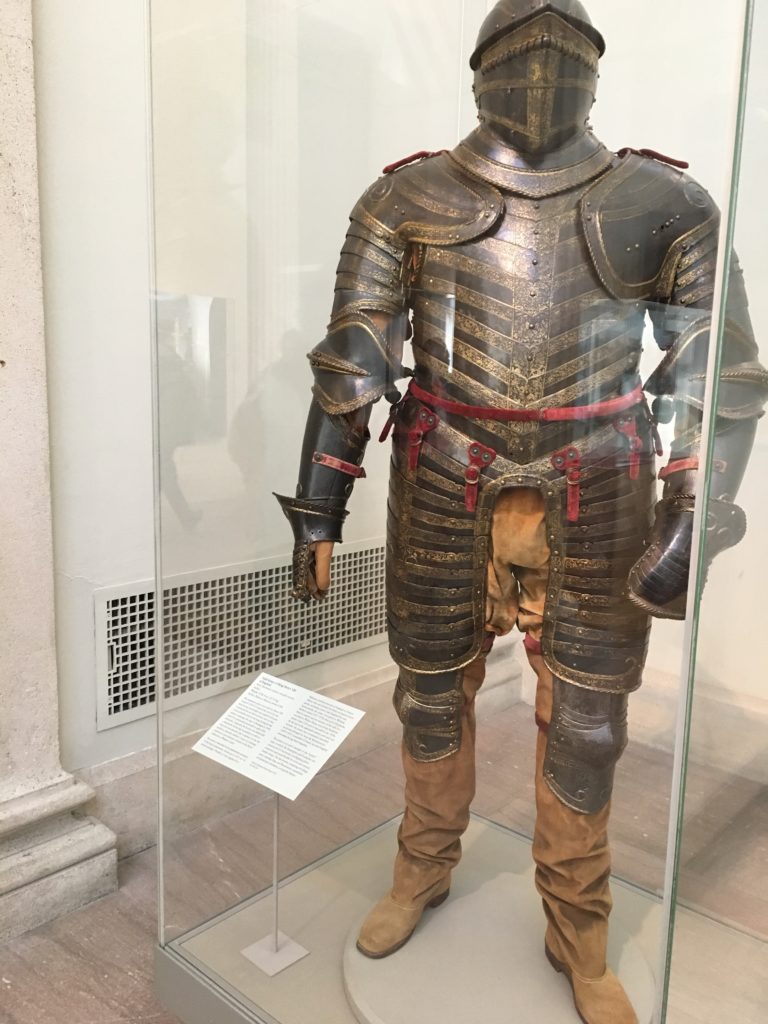
After we all decided it was time to turn in, I needed to know how to get back to my host family’s home. I really wanted to take the subway. The locals gave a chuckle, but to me, I don’t get to experience mass transit in my home city very much at all, so it was fun. On the train they pointed out all the sights to me, and they’re right: the city is very beautiful at night.
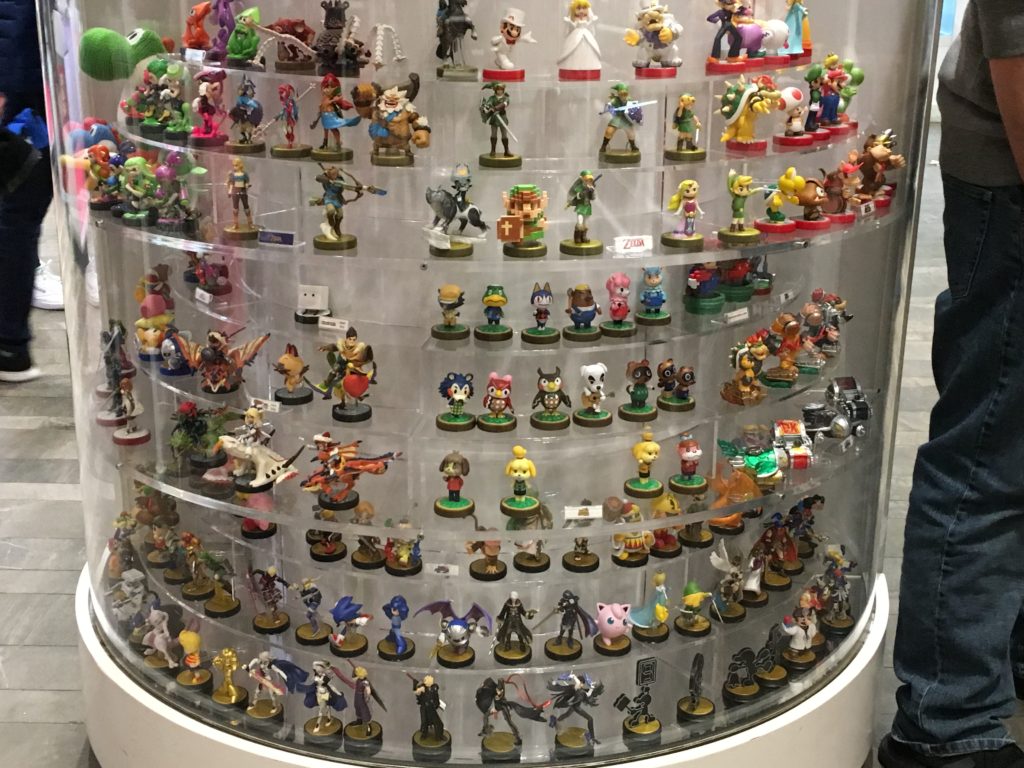
Although I did not get nearly enough time in New York City, I am very grateful for this opportunity. I was able to meet new friends and reconnect with friends I met at Wikimania or earlier with my visiting scholar role. I cannot wait to see where my adventures takes me next!
I’m presenting in New York next week!
I am so excited to be presenting next week at Wikimedia NYC’s Wikipedia Day Celebration! More to come after my trip!
